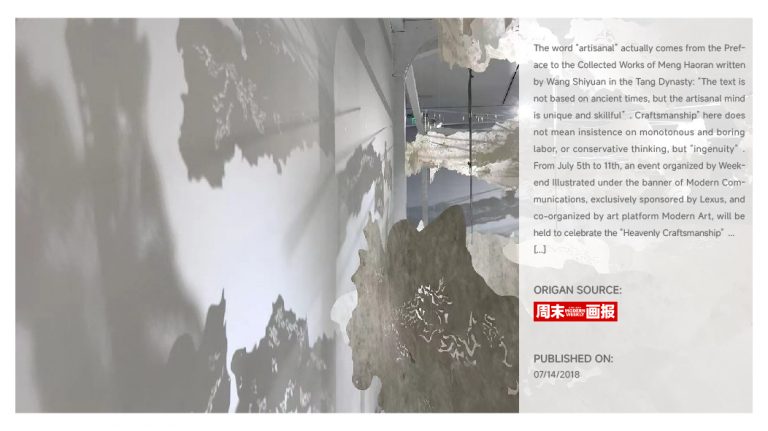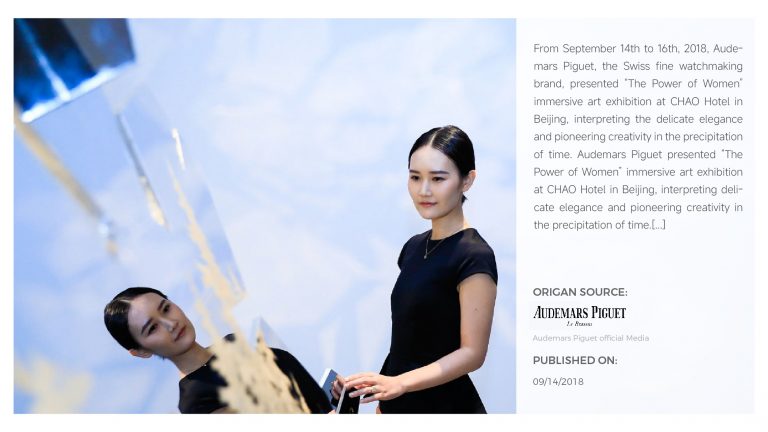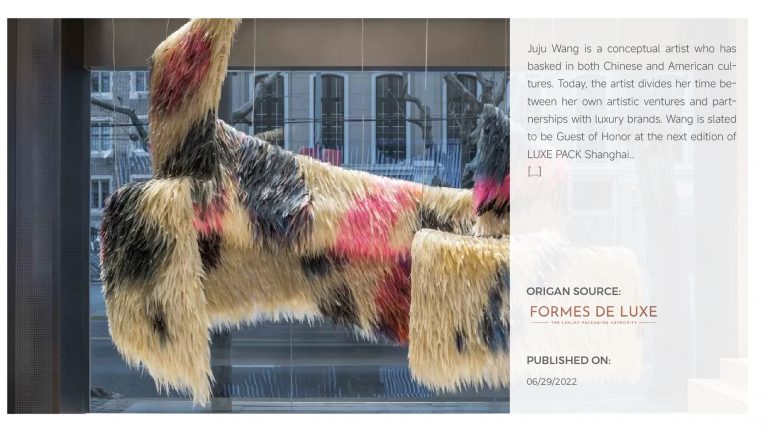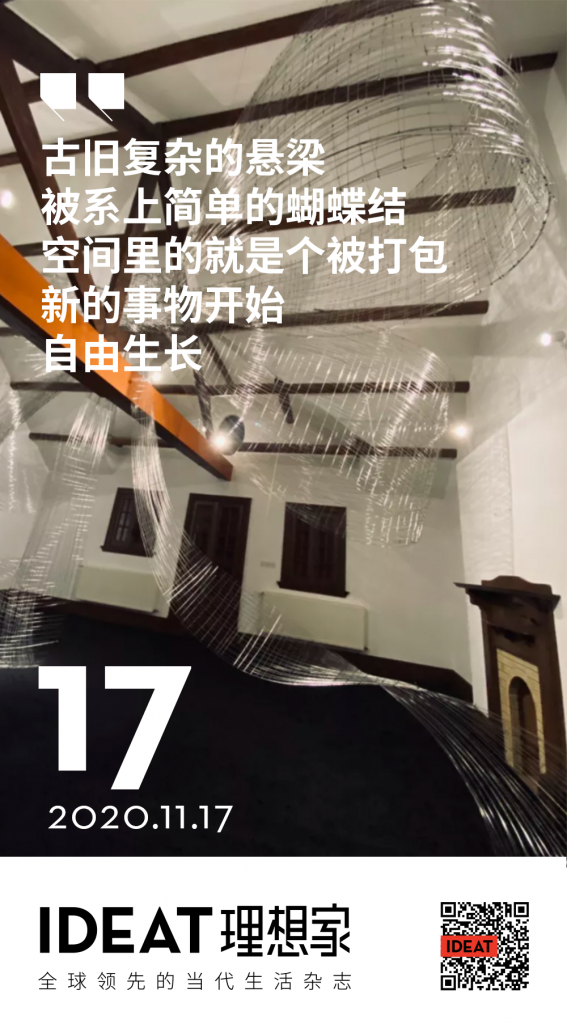
In a sense, installation art is the most direct and intense dialogue between the artist and the audience watching in the space through the artistic creation of materials in a specific space.
Artists have created wonderful little worlds through installation art. When you are in them, you begin to resonate with this specific world. Some make you confused, some make you feel stressed, and some make you rekindle hope… and The world of JUJU WANG is a process that makes you forever young and always looking forward to the unknown.
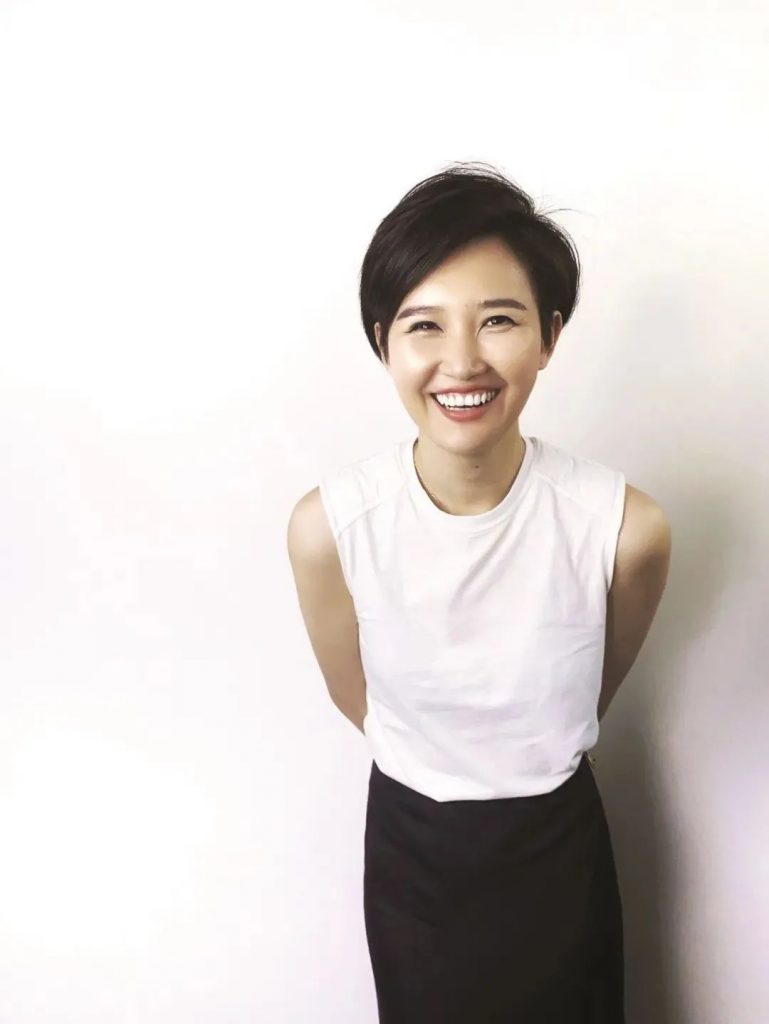
JUJU WANG was born in Shanghai. She moved to the United States with her parents when she was 9 years old. While growing up and studying, she obtained a bachelor’s degree in civil engineering and a double master’s degree in traffic engineering and urban planning. However, this engineering student, who has nothing to do with art in the traditional sense, became a embarked on a path of artistic creation. Now, with Shanghai as the axis, she is developing a modern interpretation of traditional Chinese skills, bringing her installations and graphic works to many corners of the world.
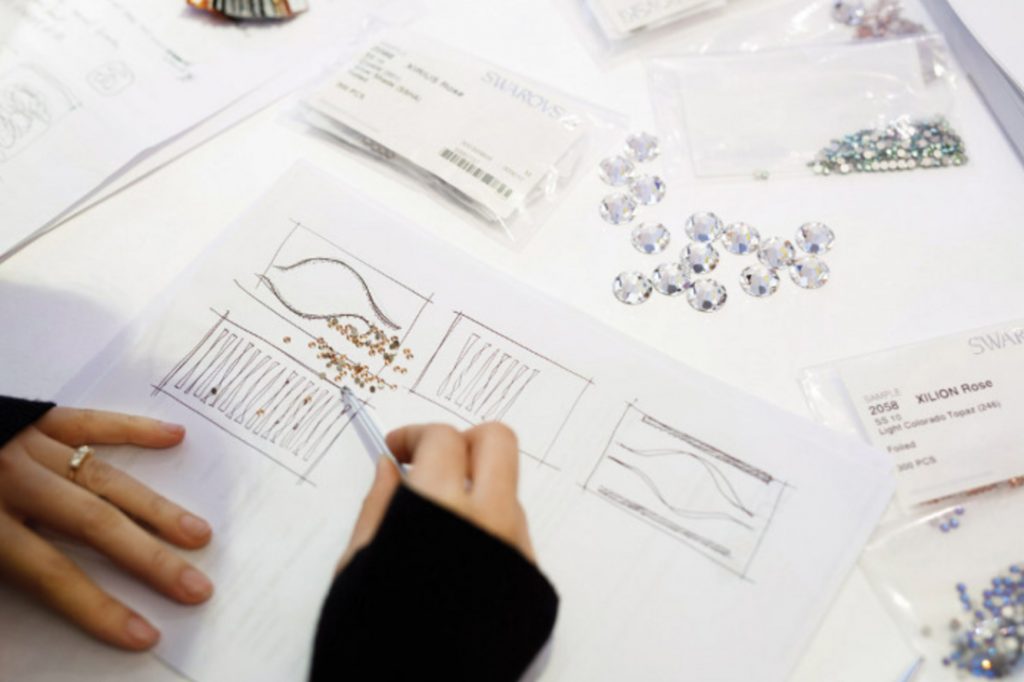
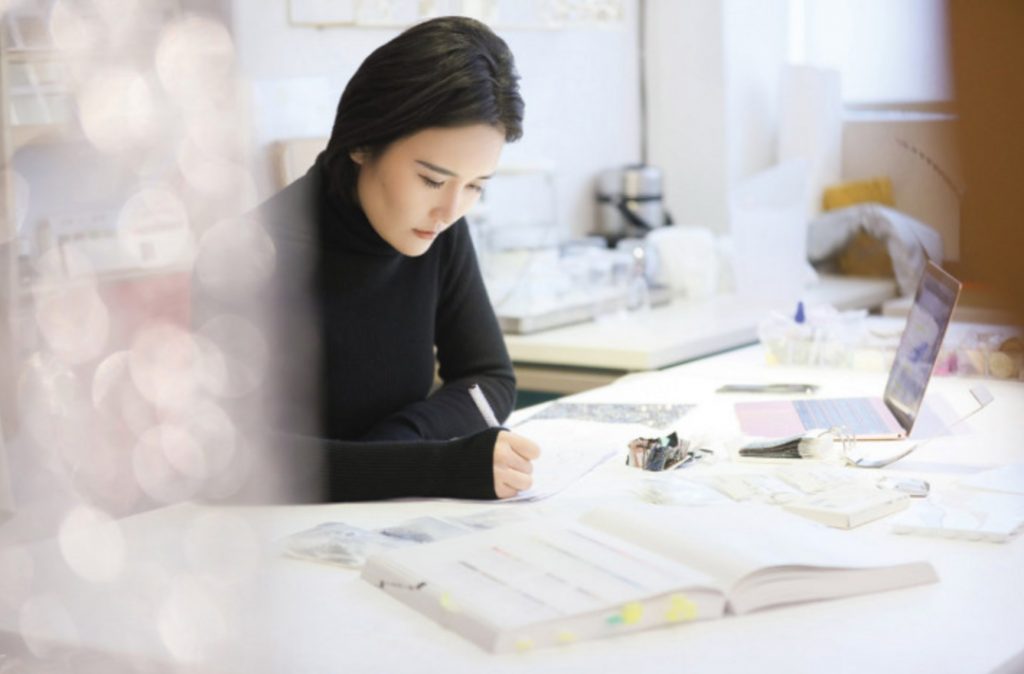
▲JUJU WANG is creating
When the engineering thinking of science meets the unconstrained imagination of art, JUJU WANG can clearly and effectively reshape Chinese tradition and culture from a contemporary perspective, and more purely express the flow of inner emotions in the visual space. It is no wonder that JUJU WANG is so popular in interactive installation art. She has the reputation of “Magician” in the world. She has made countless first-line big names ACQUA DI PARMA, AP, CANADA GOOSE, DIOR, GIVENCHY, SWAROVSKI, TIFFANY, YSL, etc. become her artistic friends.
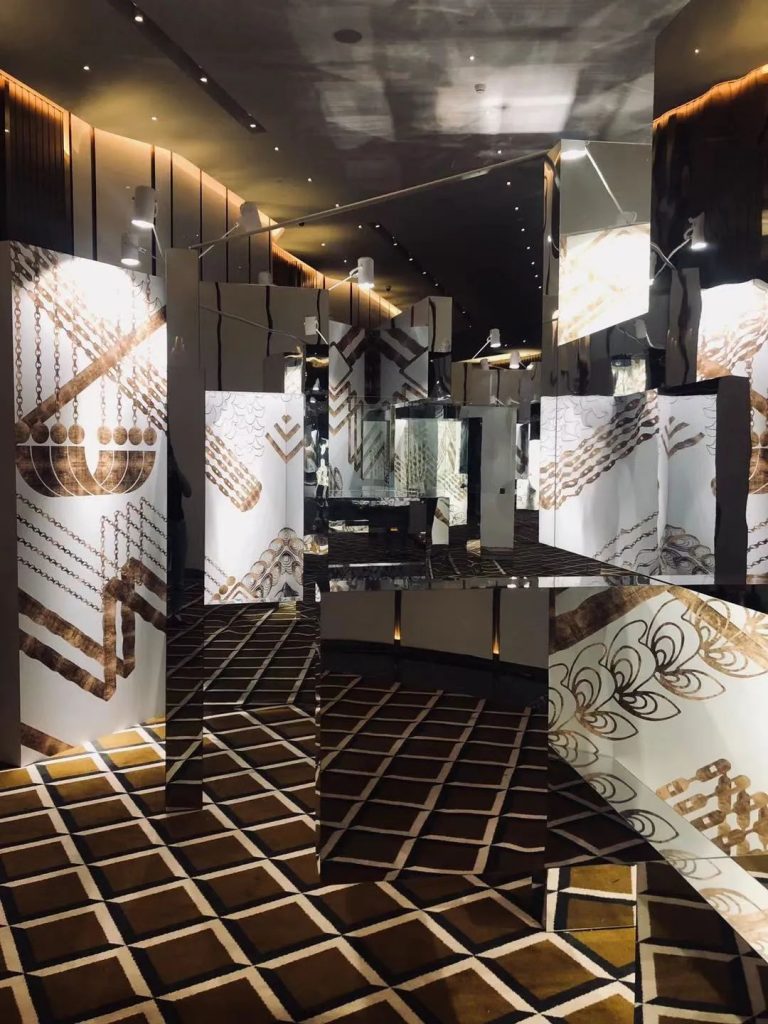
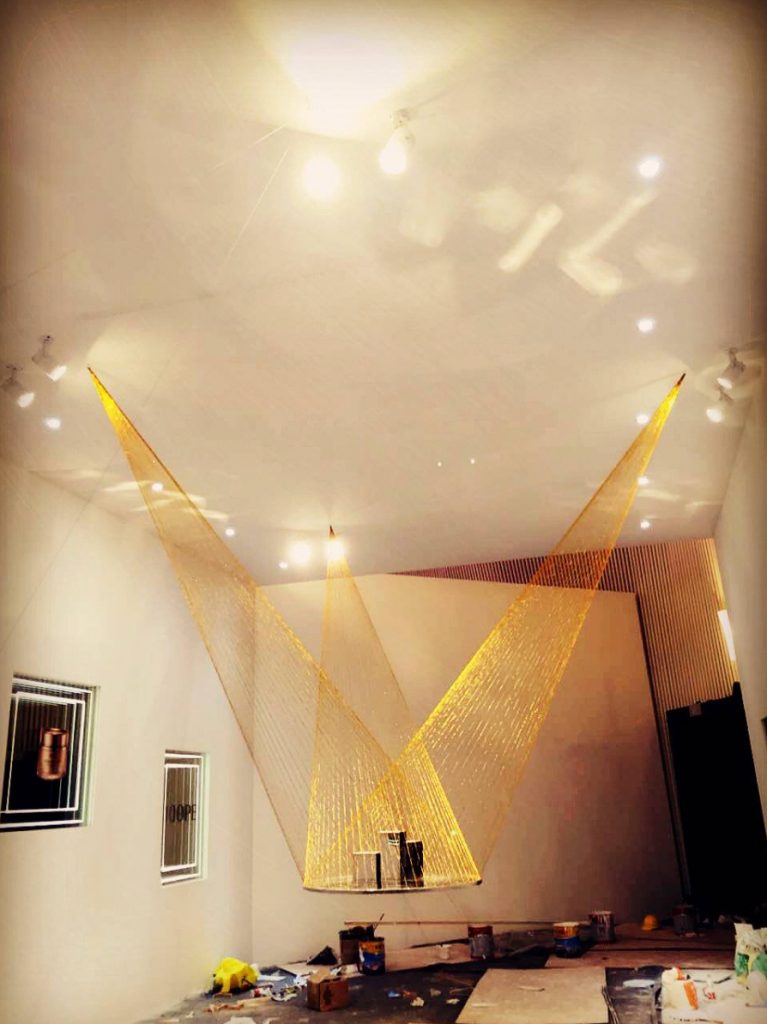

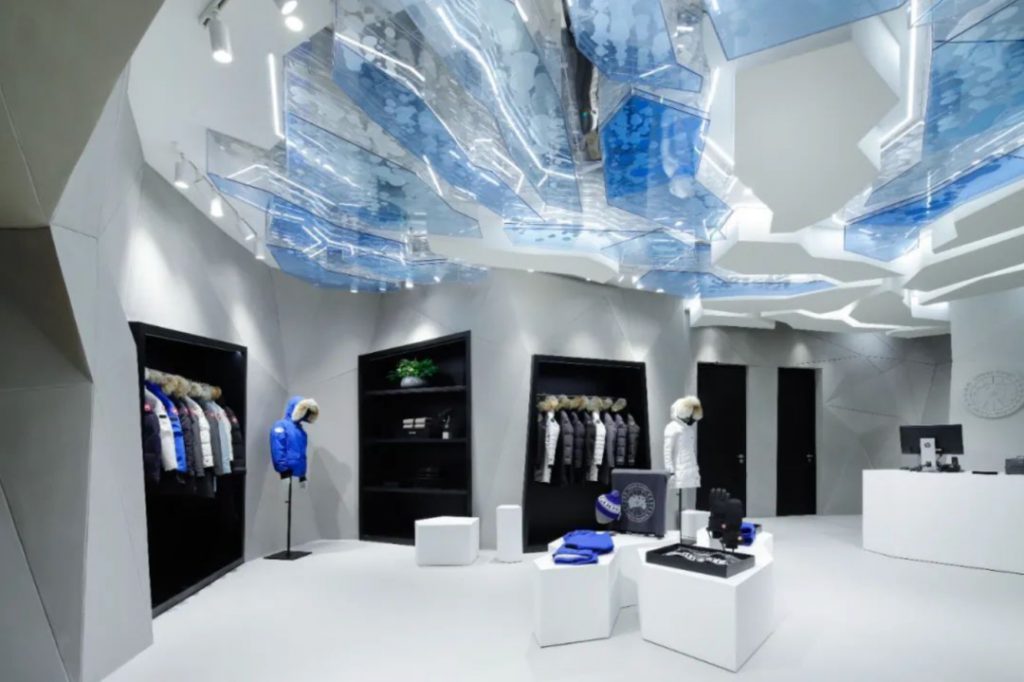
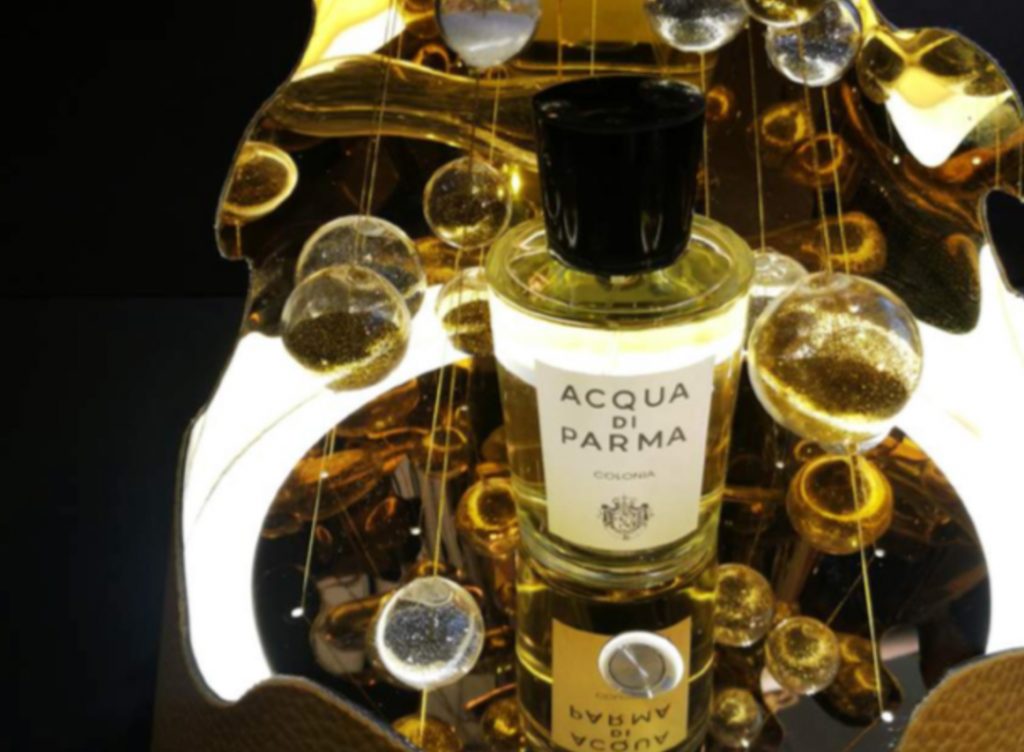

▲Cross-border brand cooperation over the years
In the unusual year of 2020, in Shanghai, Suzhou, Miami and other places, you will encounter a JUJU WANG that is different from before. For example, when you recently walked into “Crossing Art” at the West Bund Art and Design Fair in Shanghai and saw an artwork named “Kimo-Kawa” (ugly), you probably couldn’t think of the creator behind it. JUJU WANG.
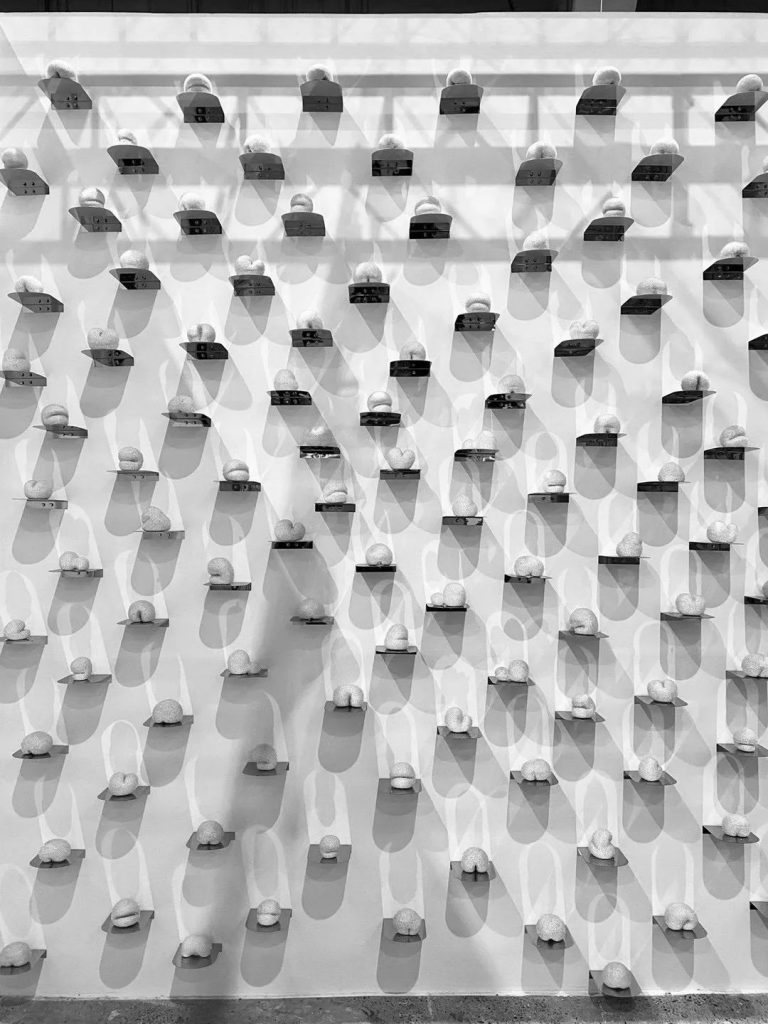

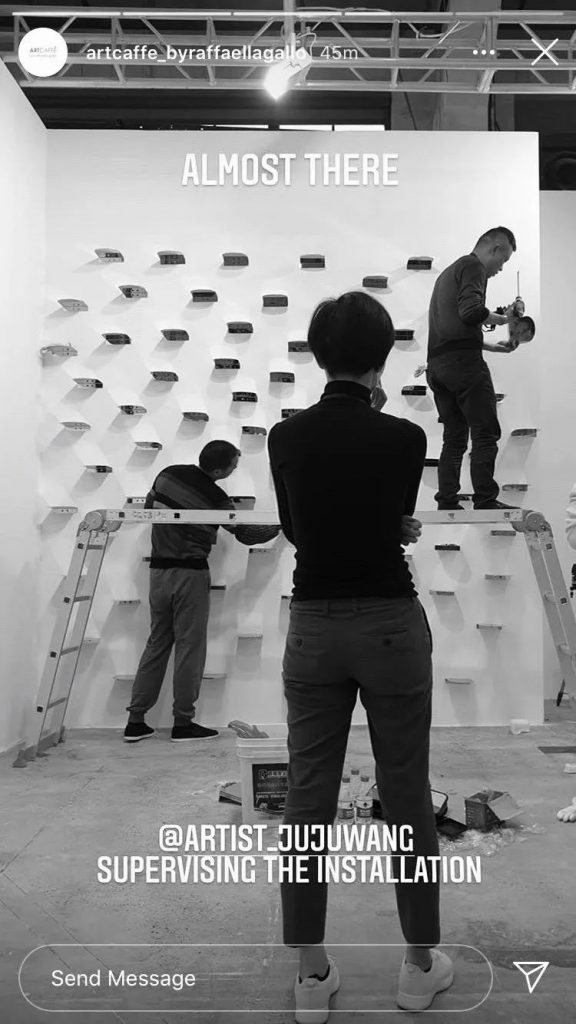

▲《Kimo-Kawa》
“Conflict,” “time” and “emotion” are words she has mentioned repeatedly recently. What her works convey is still beauty, but this beauty contains more of the freedom and determination after experiencing the storm. So today let us enter the world of JUJU WANG, listen to the stories behind the works, and learn about the recording and sharing of those experiences.

Conflict, be grown
“Conflict” can be regarded as JUJU WAN’s word of the year in 2020. Through her previous works, we can easily find that those brightly colored acrylics, shining crystals, pure paper, gorgeous gold foil… dreamy and delicate Materials create childhood dreams, innocent fantasies, historical glory and other beautiful things.
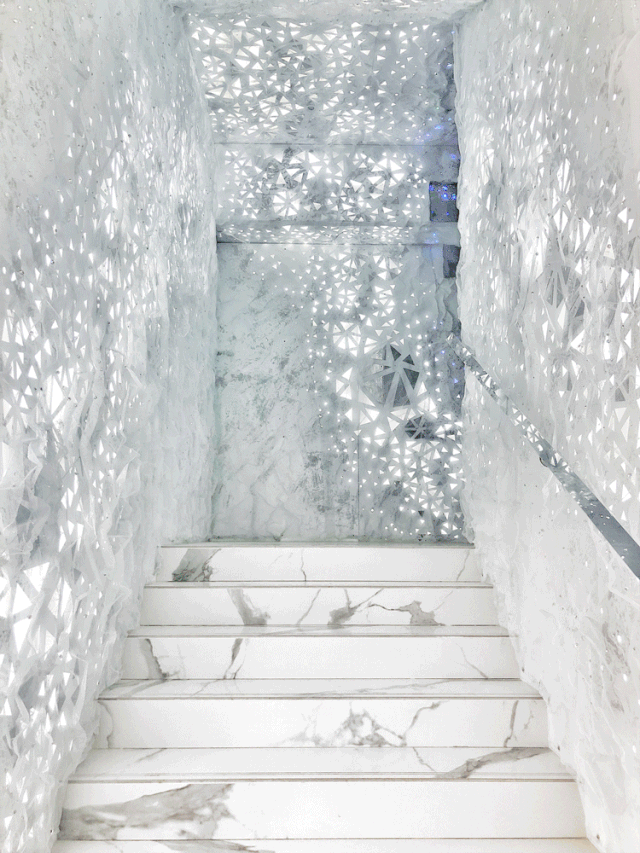
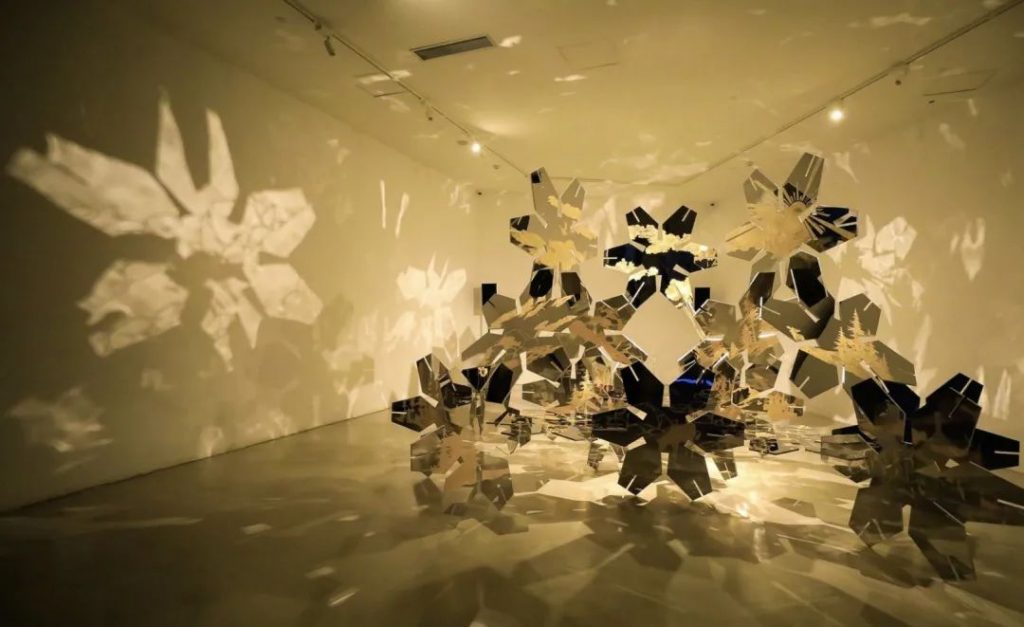
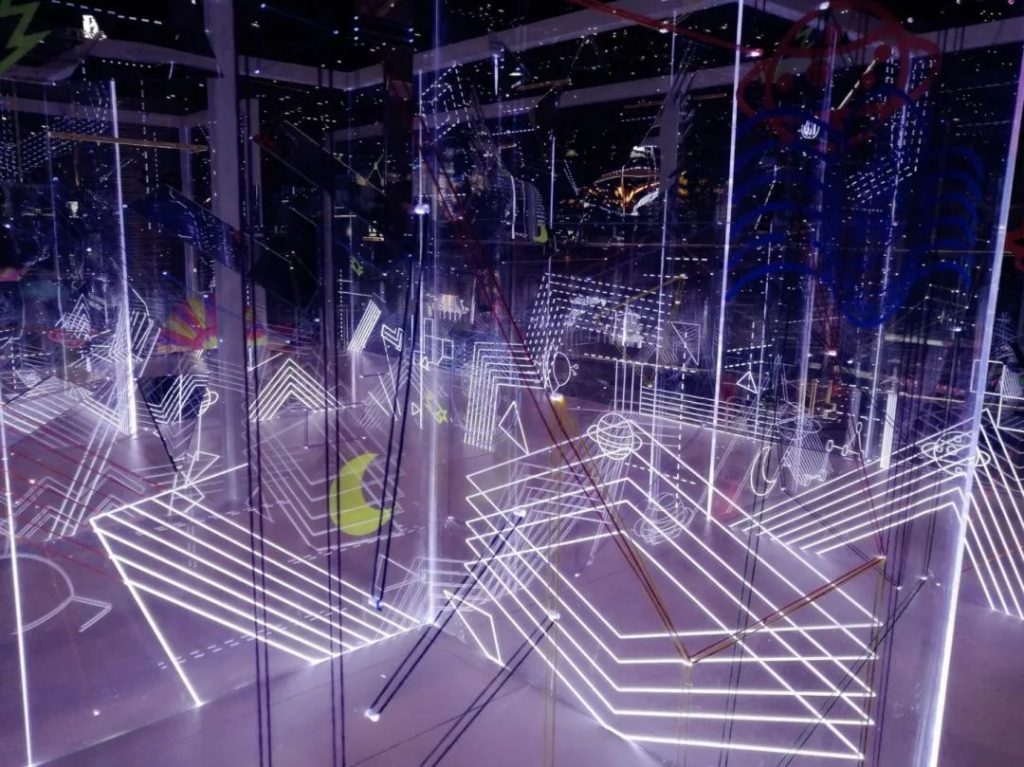
▲From top to bottom: “Cystal cave”, “S nowflakes”, ” The maze”, “Rise”

“The sense of conflict started this year. My previous works should give people a very dreamy and beautiful feeling. But this year I have changed, just like life has pros and cons.”
Such changes have been reflected in addition to “Kimo-Kawa” at the West Bund Art Museum. In the third floor space of a dark green old house in Objective, Shanghai, a giant bow “OVERGROWN” full of conflict is also interpreting JUJU WANG word of the year. When dreamy things appear unexpectedly, the spirit of rebellion and innovation dominates your and my first sight.
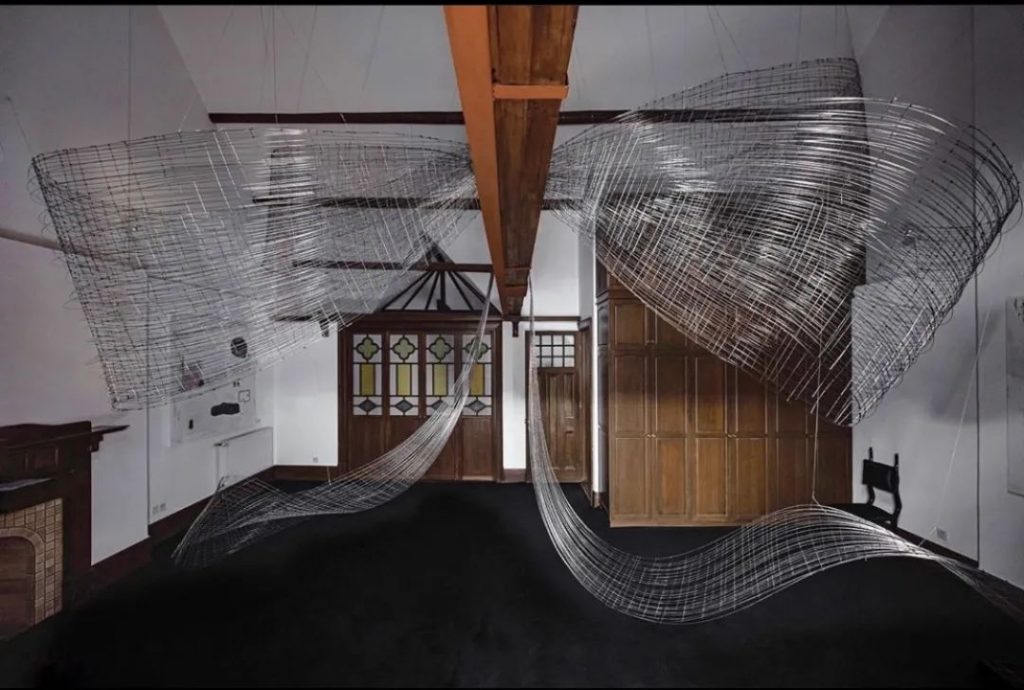
▲《OVERGROWN》
In this ancient old building, there are design works by artists from various countries, regions, and different fields. The space, from three-dimensional to two-dimensional, is trying to tell the ingenious integration of art, home furnishing, and space, and enrich thinking in different dimensions. . And this giant bow is JUJU WANG’s most direct inspiration for space. The complex cantilevers in the space are imagined as a piece of luggage that needs to be packed, or a room that needs to be renovated. JUJU WANG just straightened up the messy suspension beams, tied the bow and then hit the road again! Therefore, in terms of materials, the past overly feminine choices were abandoned and replaced with steel wires that were stronger both visually and in actual construction. Only by sorting out good and bad emotions can you grow freely.
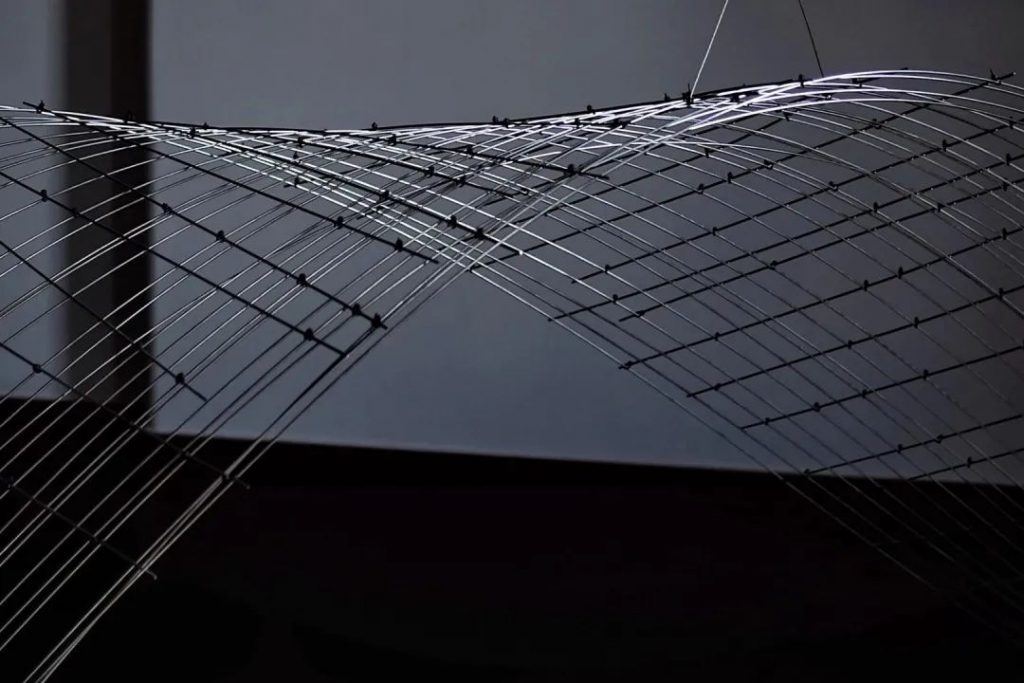
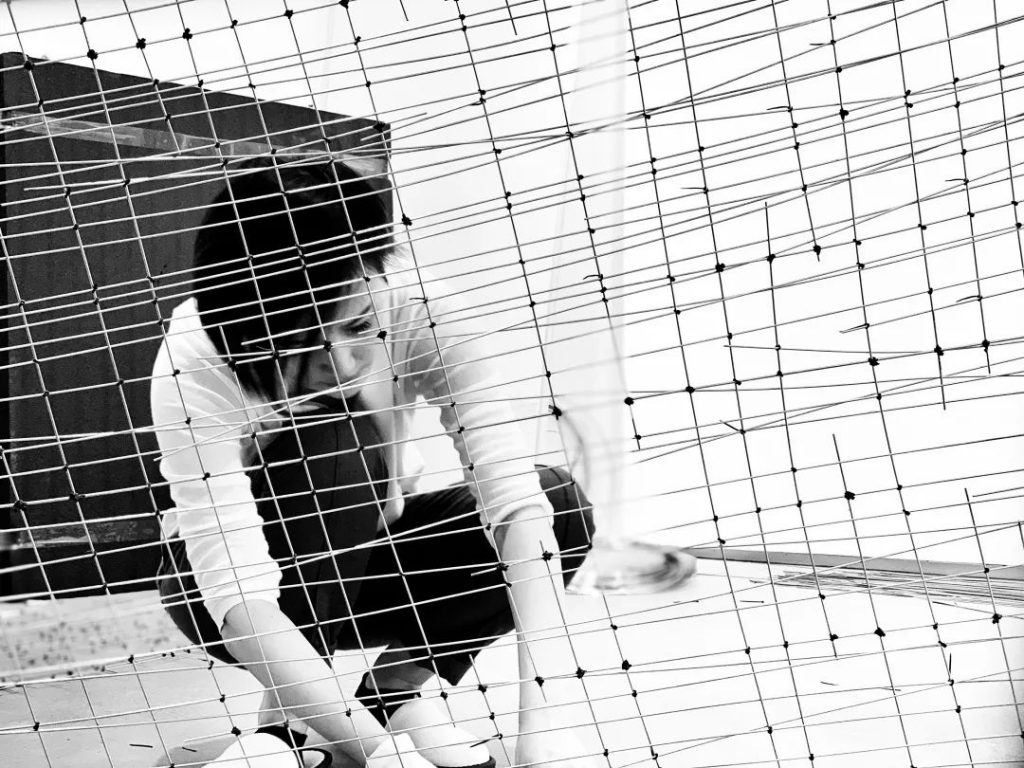
Just like 2020, it is full of challenges for everyone. The outbreak of the epidemic and the changing world situation. Even the Digimon who accompanied us in our dreams in childhood are urging us to face the adult world… But maybe The more difficult the moment, the more intensely the beauty and innocence in people’s hearts will break through everything and express themselves directly, giving themselves courage and kindness to those around them.
“There will be more conflicts at this stage this year, starting from this year. When I encountered some problems, I was very angry at first, but now that I think about it, this is also a life experience, so now it seems that it is not a bad thing. These memorable moments This is a good thing for my growth.”
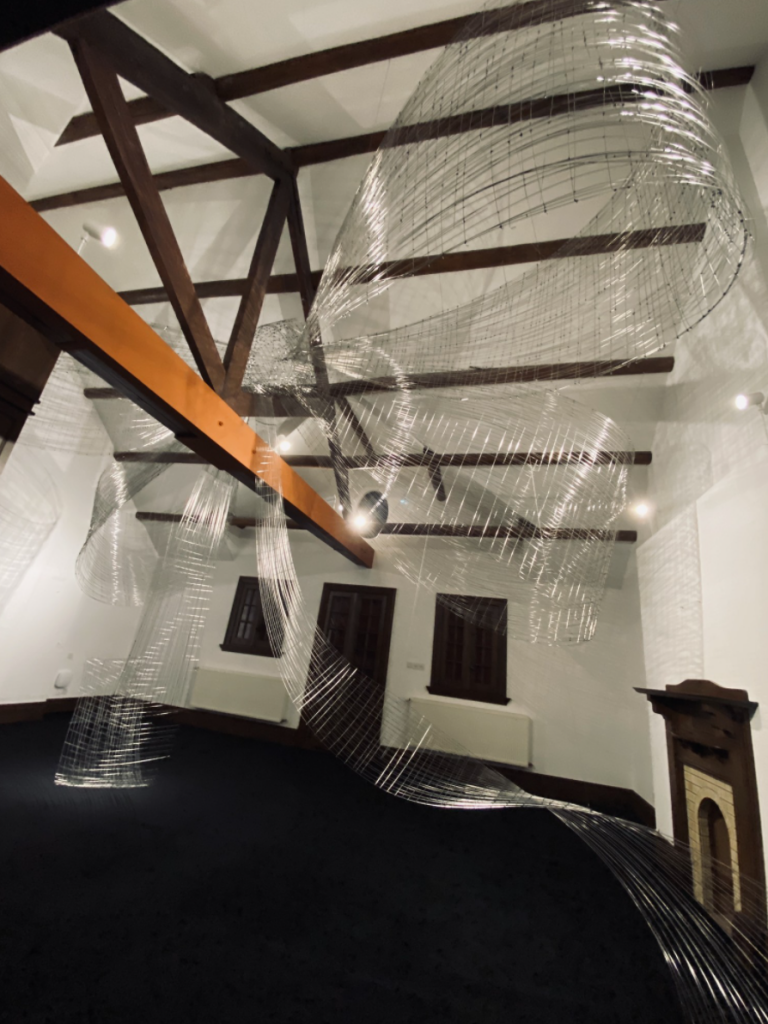
The form may belong to everyone’s empathy, but the material is the personal expression of JUJU WANG. When you are still wondering about this bow, you look up at the complicated cantilever above your head, and then you imagine the entire space as a luggage or a room to rest again. JUJU WANG just straightened up the messy suspension beams, tied the bow and then hit the road again! Therefore, in terms of materials, the past overly feminine choices were abandoned and replaced with steel wires that were stronger both visually and in actual construction. Only by sorting out good and bad emotions can you grow freely.
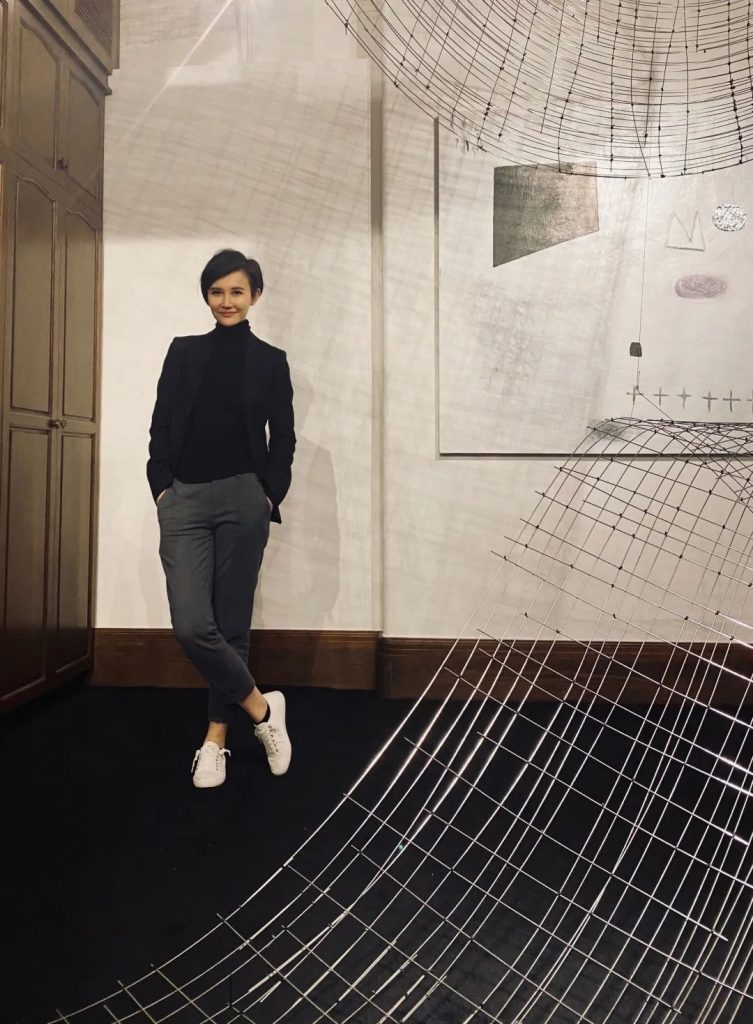
In addition to the bow itself, several works by JUJU WANG are also placed in Objective. The colors are bright and the images are simple and warm. Among them, the “Hearted” tapestry is inspired by JUJU WANG’s daughter, and every pattern is the shape of loving you.
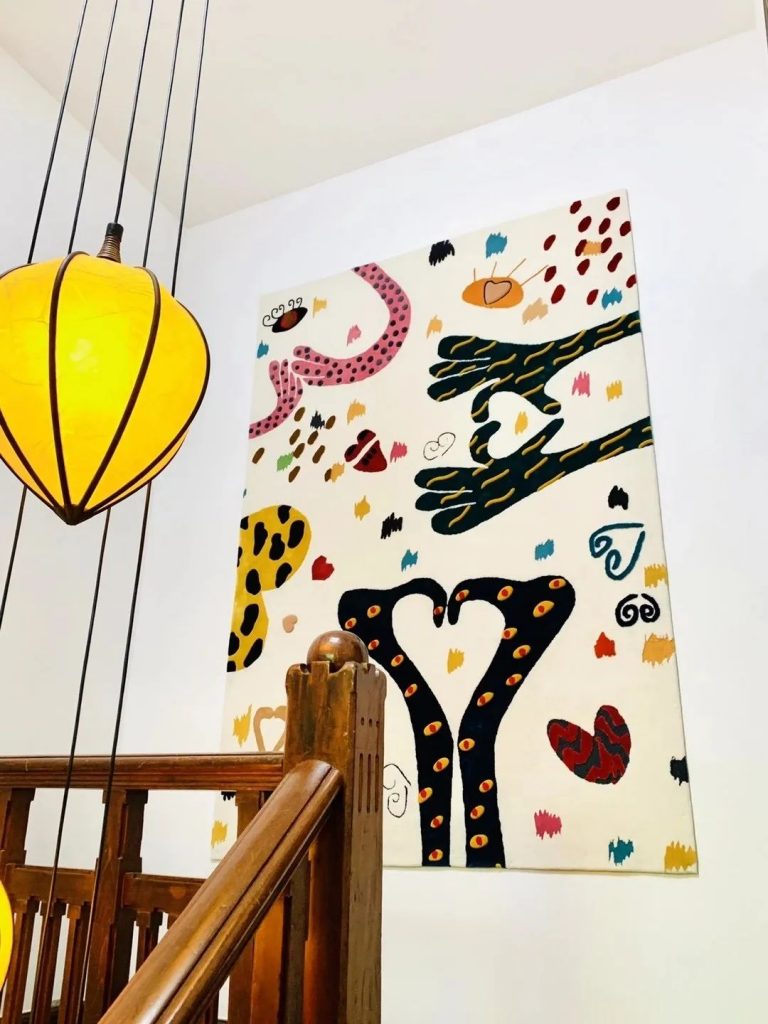
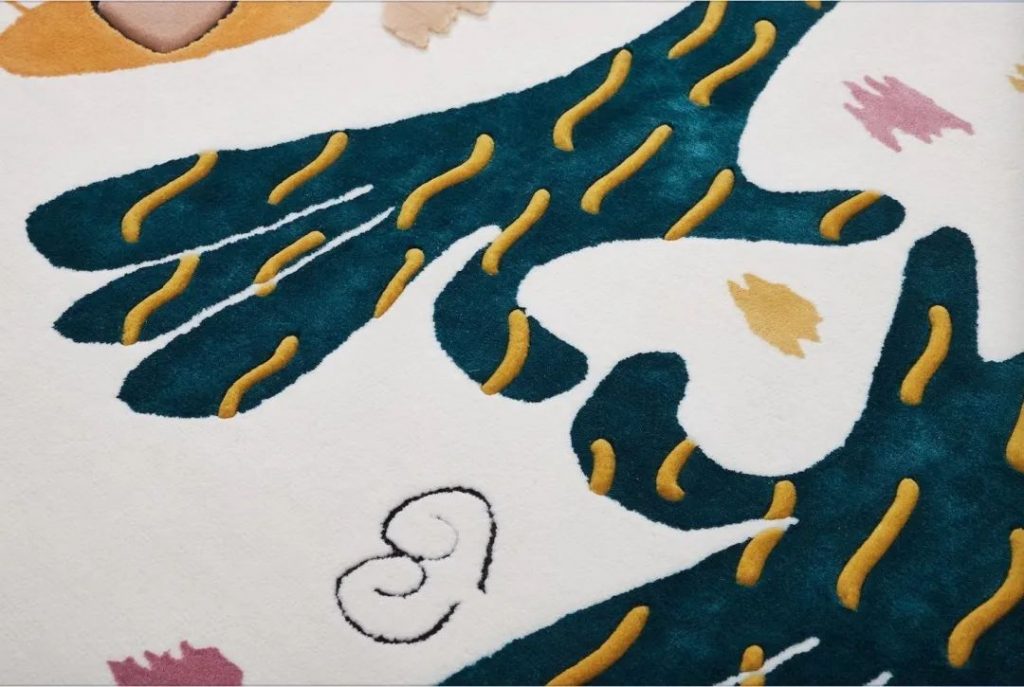
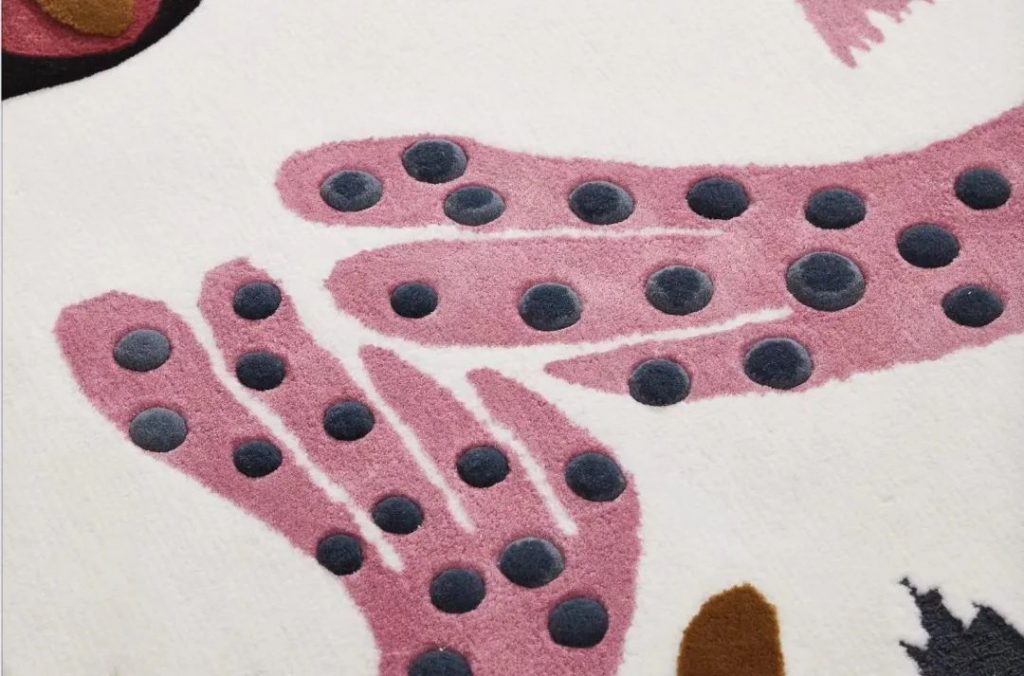
▲”Hearted”
Located in the same space as the bow tie, there is a sandbag sofa and several JUJU WANG paintings. You can lie on the sandbag, put on headphones, choose a song you like, and quietly appreciate the objects in the space. , the sense of conflict in materials and themes, to feel the dramatic tension created by installation art and space.
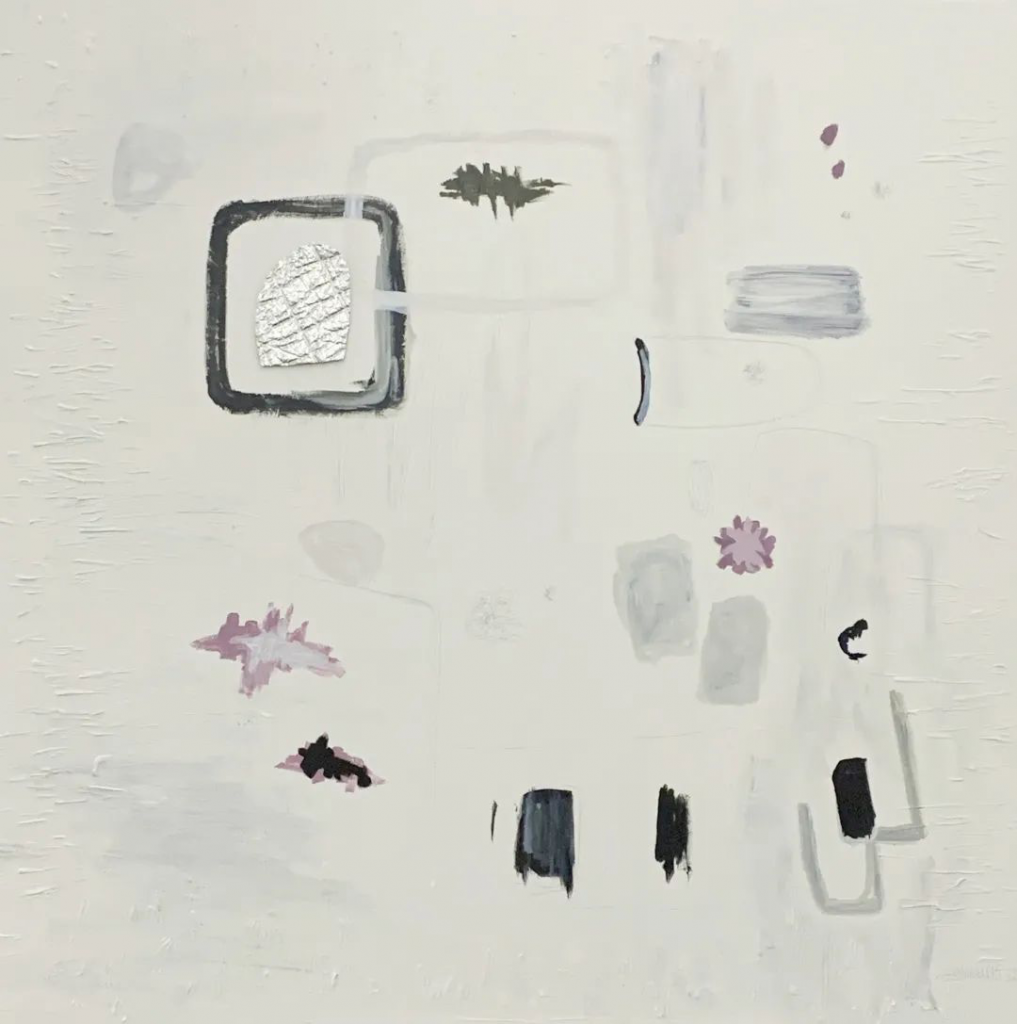
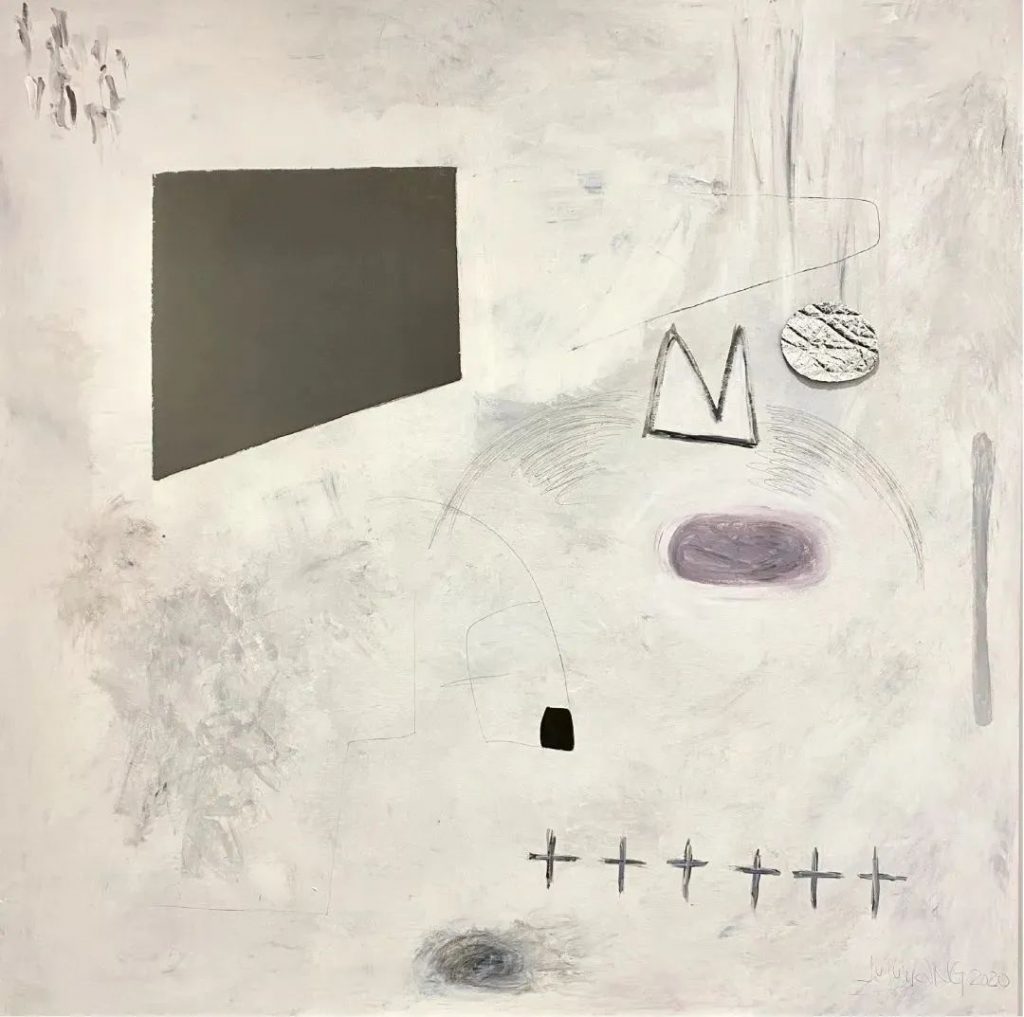
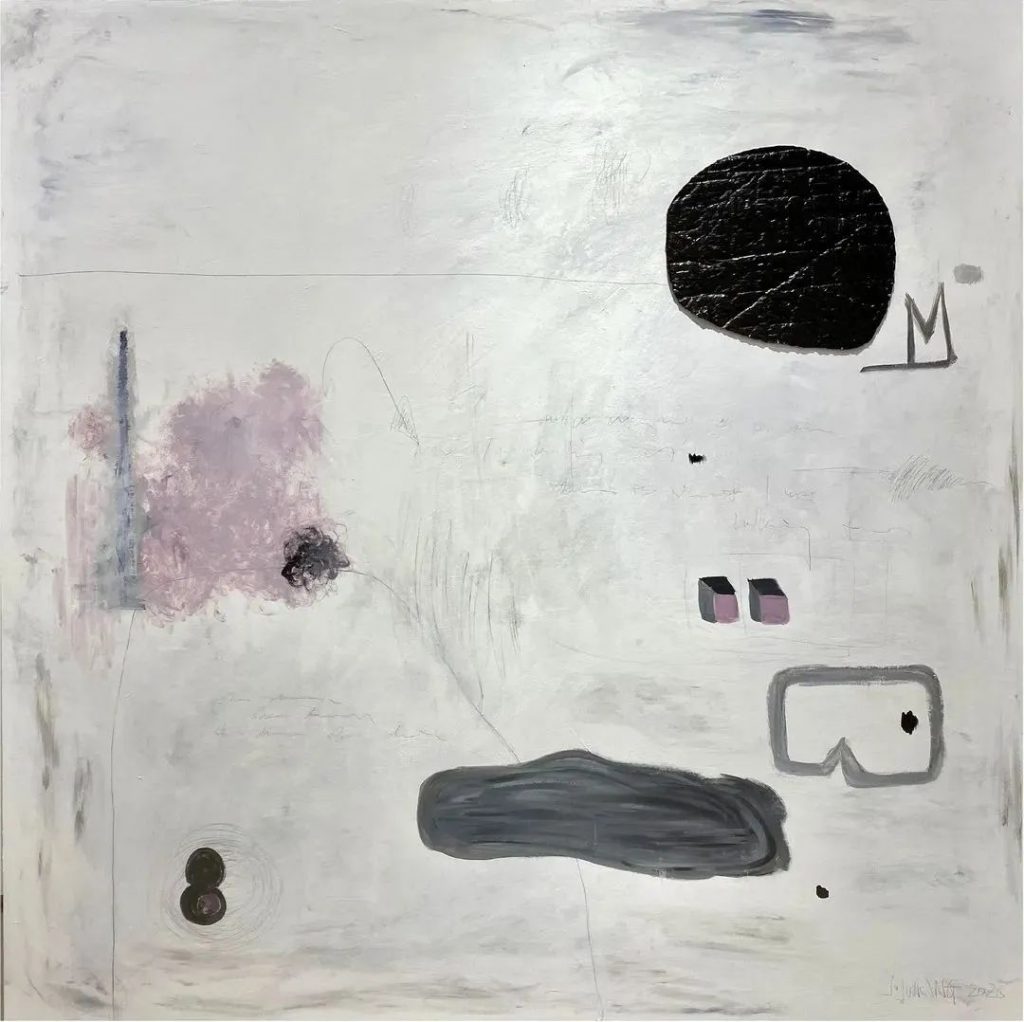
▲From top to bottom: “Of Contrasts”, “Split Second”, “Tandem”
time, recorded
“Time” is actually a word that has been used throughout JUJU WANG’s works. This word contains many meanings. For example, it is saying that the presentation of each work actually takes a long time; another example is the interpretation of time, some of which are conveyed to the public through modern interpretations of traditional art, and some of which turn the work itself into time. carrier to record.
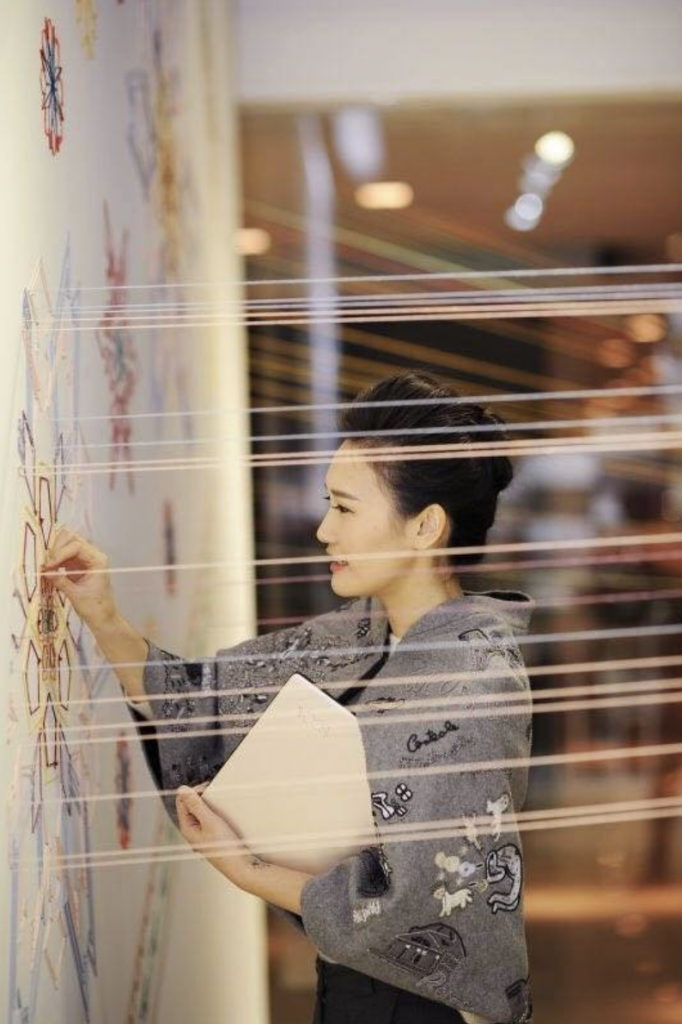

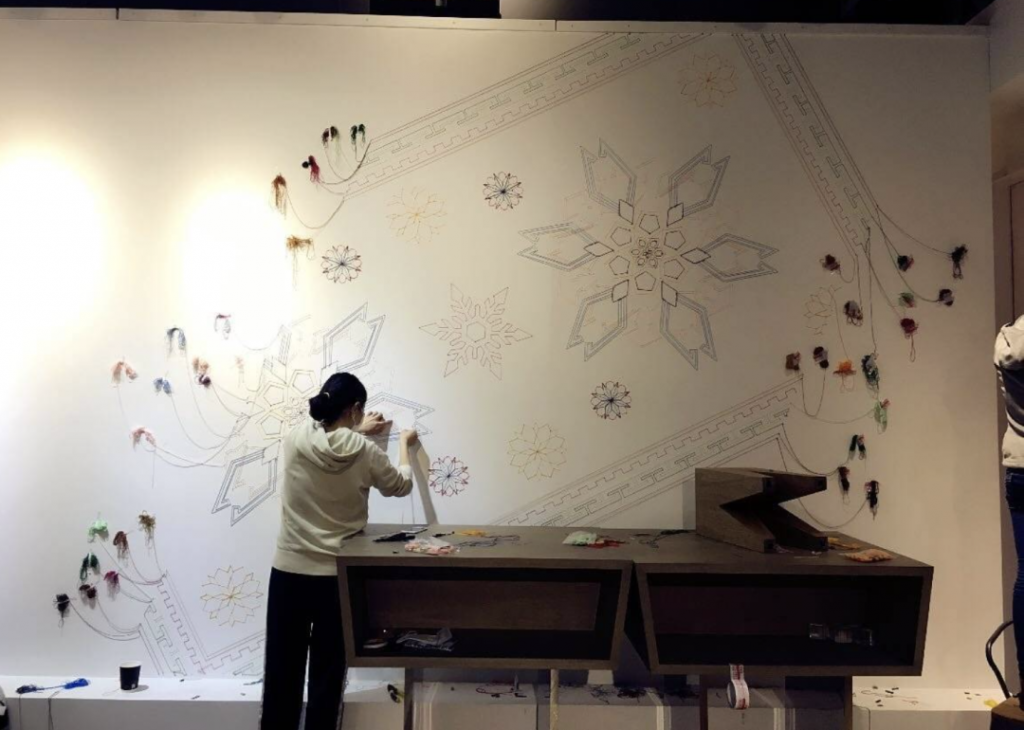
▲ ” Line Shadow” 2017 : Life is a starting point, but it will go through different paths, crossing or parallel, and there will be gains.
JUJU WANG is influenced by Western culture, and her expression in her creations is more direct and pure. At the same time, her Eastern background gives her a deeper passion for traditional Chinese culture. JUJU WANG has always hoped to record the splendid civilization left behind in ancient times through modern interpretation of traditional skills. The essence of these times should not just stay in museums. The way it is truly passed down is to enter our lives.
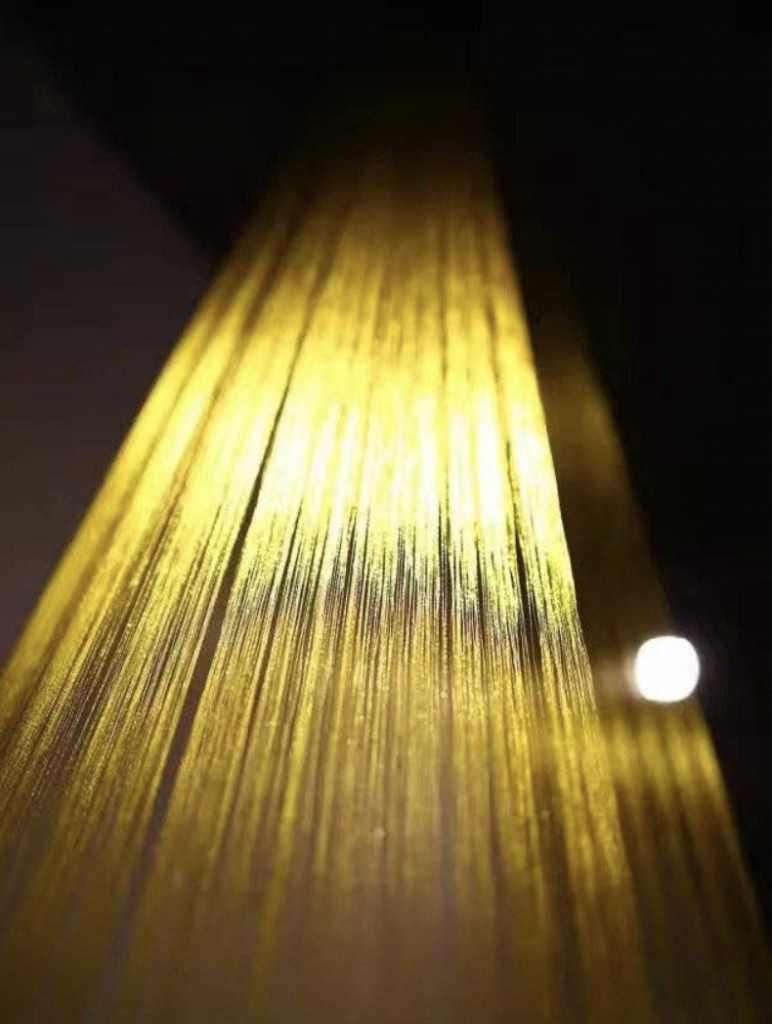
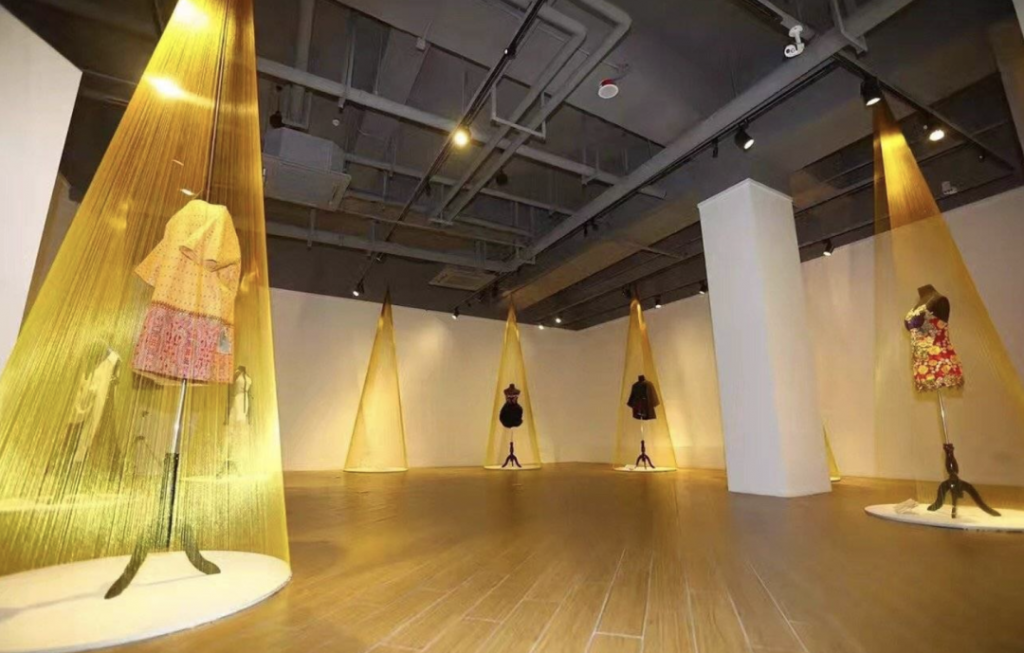
▲ “From above”: Like holy baptism, like light from heaven. The light reflected by the golden thread forms an enveloping force, incorporating clothing inspired by embroidery. It is the rebirth of traditional skills in modern life; the golden thread that connects the sky above and the earth below is also people’s expression of respect for heaven and earth. .
“Looking at the Palace” is a modern tour of ancient monuments that takes place in our lives. It is a propositional installation placed in the 600-year-old Chaotian Palace in Nanjing. The entire project took JUJU WANG eight months. She stayed in the temple almost every day to observe the tourists coming and going and analyze their viewing habits.
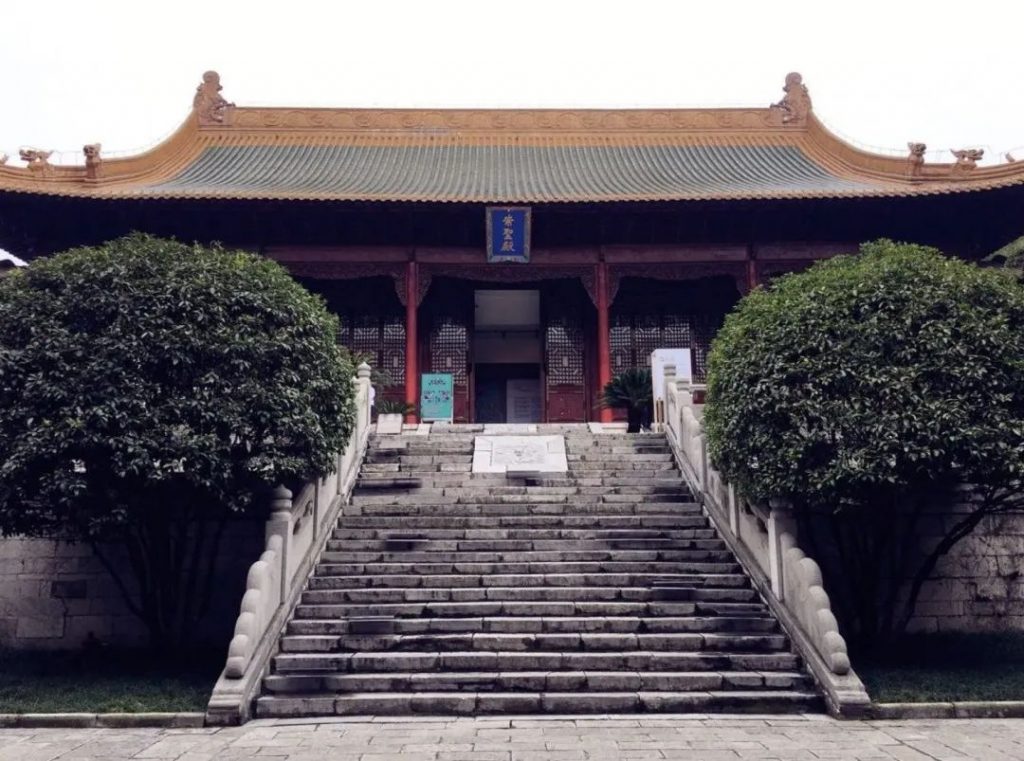
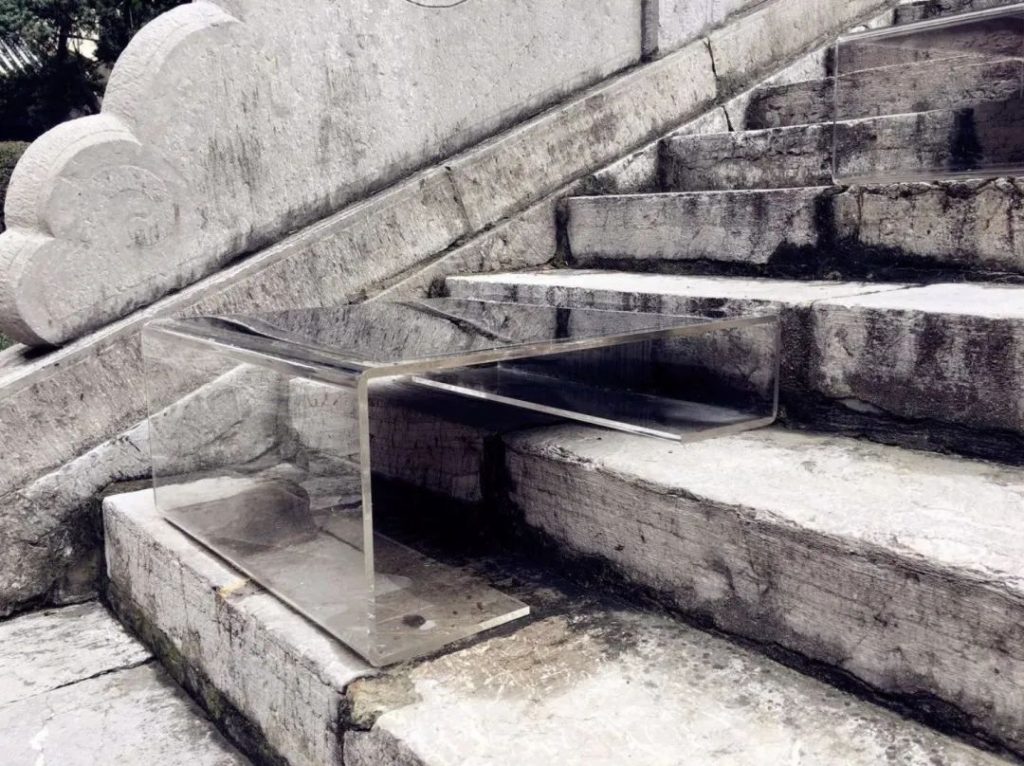
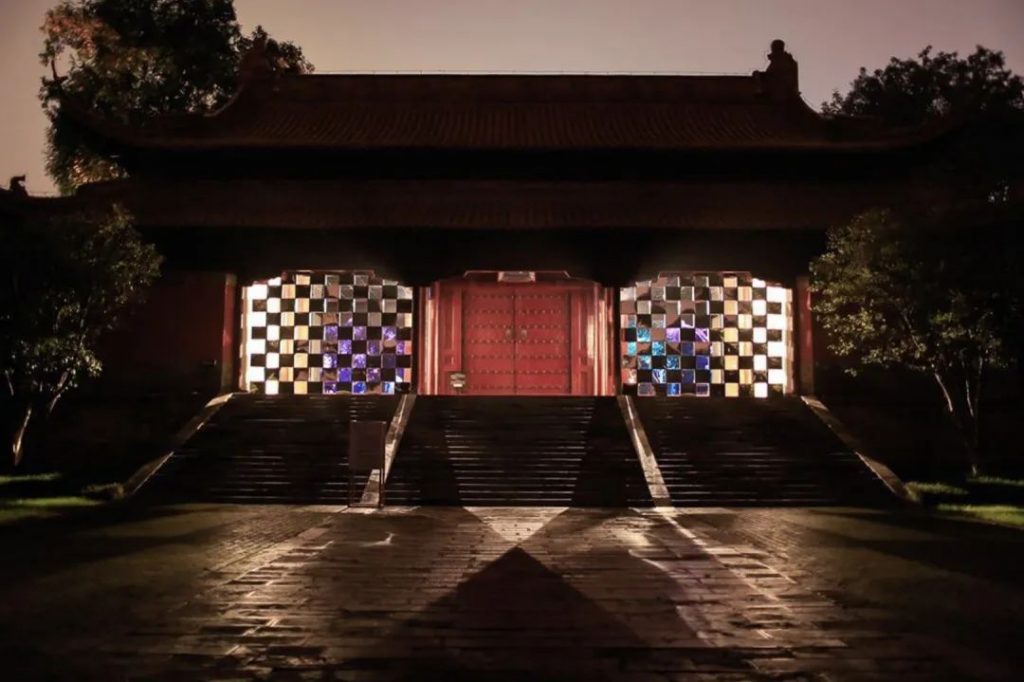
▲”Viewing the Palace”
“”Palace Viewing” is a combination of new materials and old buildings. I am actually very worried about this project. I am afraid that people will say: “How can you design this in an old building?” So instead of adding something, let’s visit it from a different angle. “
She found that in order to take a photo with the three-meter-high main hall, people had to go to the end of the square, and after taking the photo, they had to rush back to visit. The most exquisite and unique porch structure and floral decorations in the entire Chaotian Palace were was skipped. Therefore, “Looking at the Palace” is based on the modern visiting habit of checking in, 100% restoring the original palace door, removing the complicated colors and materials, and just carving the exquisite structure on the transparent material and placing it on the side of the corridor. The details of Chaotian Palace are instantly magnified, and visitors will not miss the wonderful things when they walk in front of the palace.
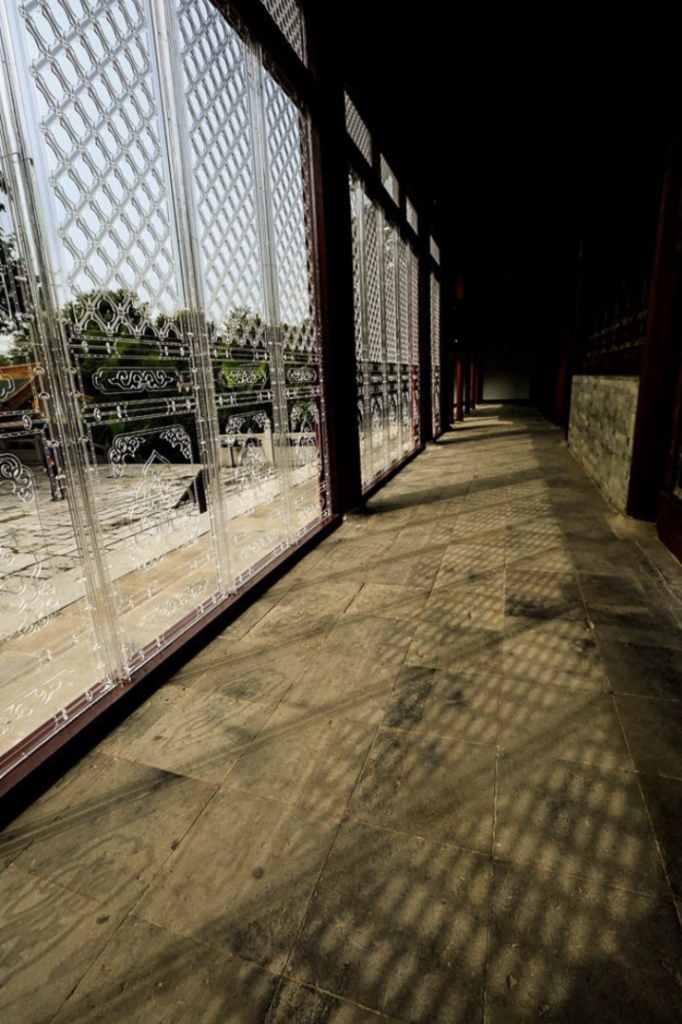
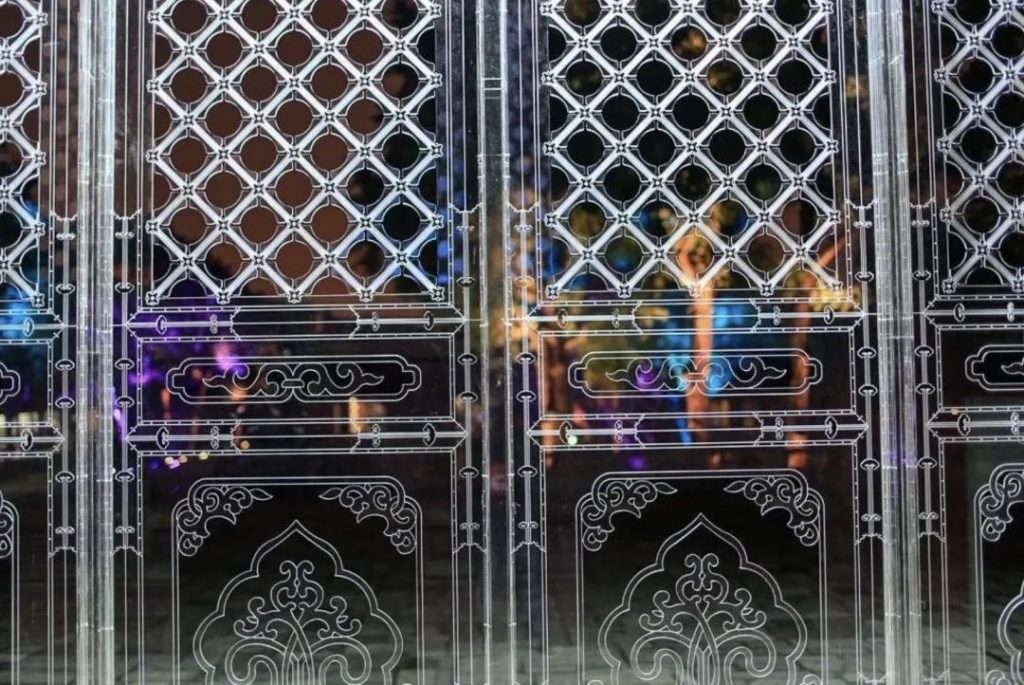

▲The porch of the “Looking at the Palace” series
The main hall is occupied by 50 mirrored stainless steel boxes. The real sight and reflected scenes when you are in them blend the virtual and the real, ancient and modern. The ancient time is awakened, and the fairy spirit in the temple culture is ready to come out.
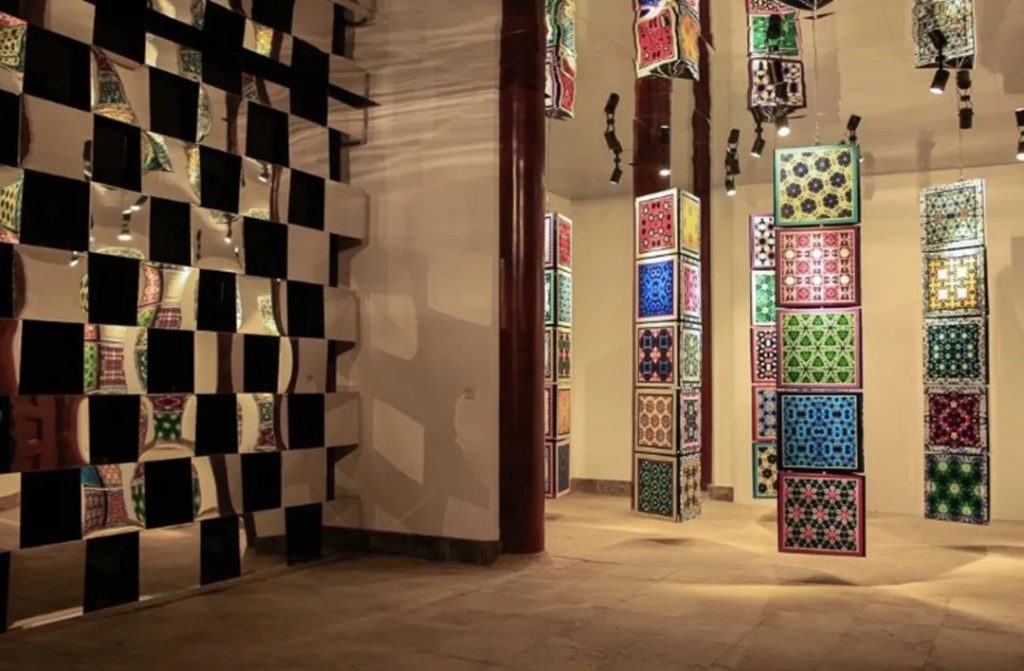
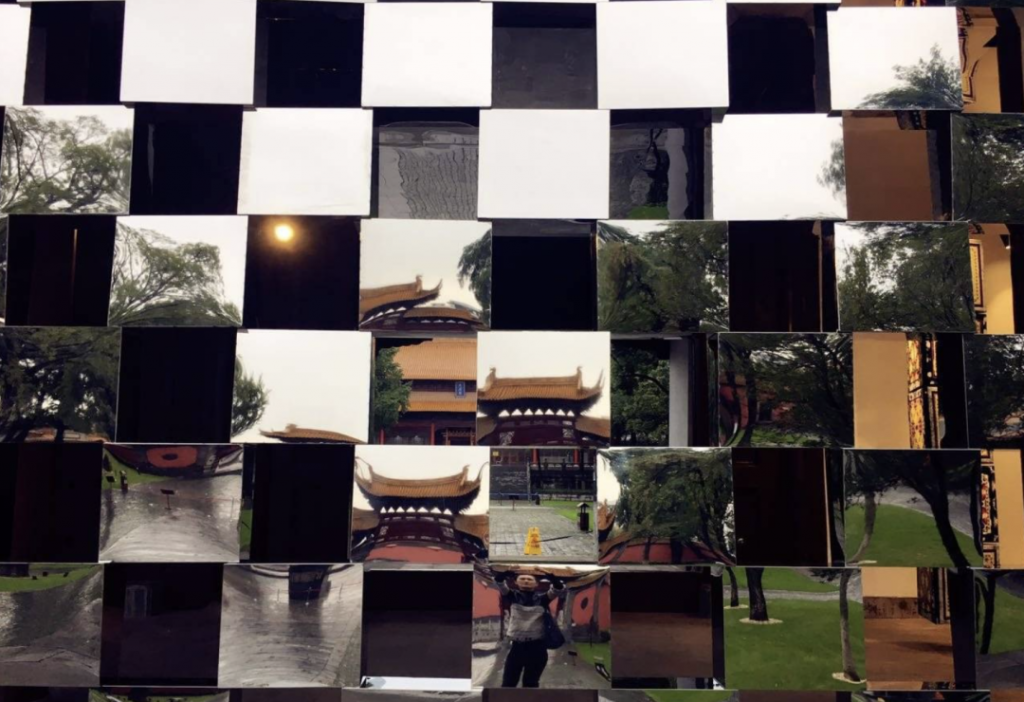
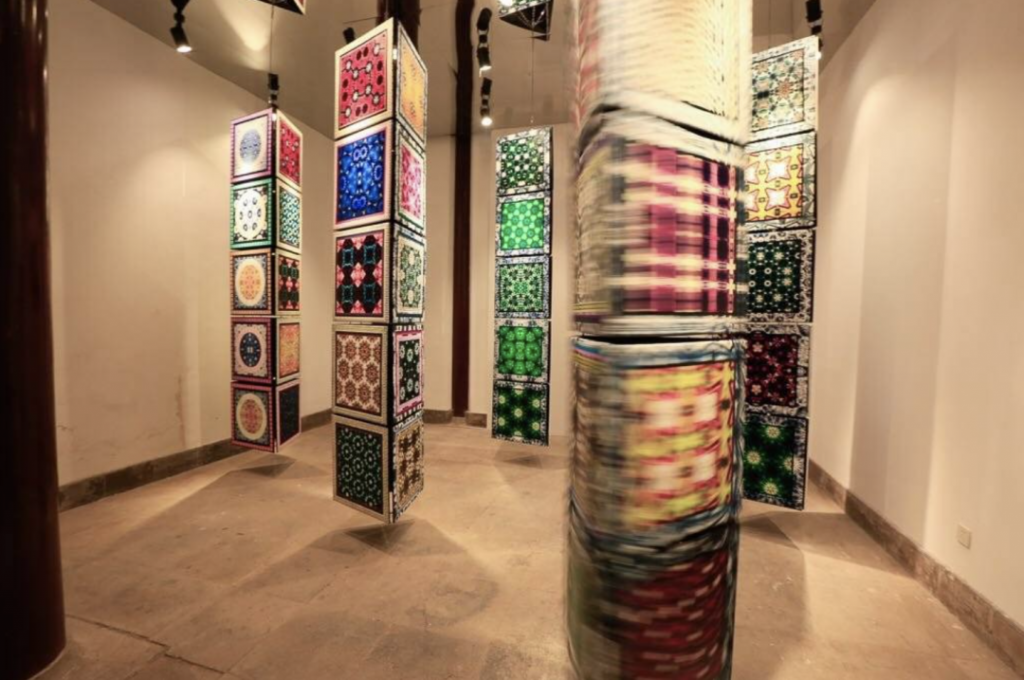
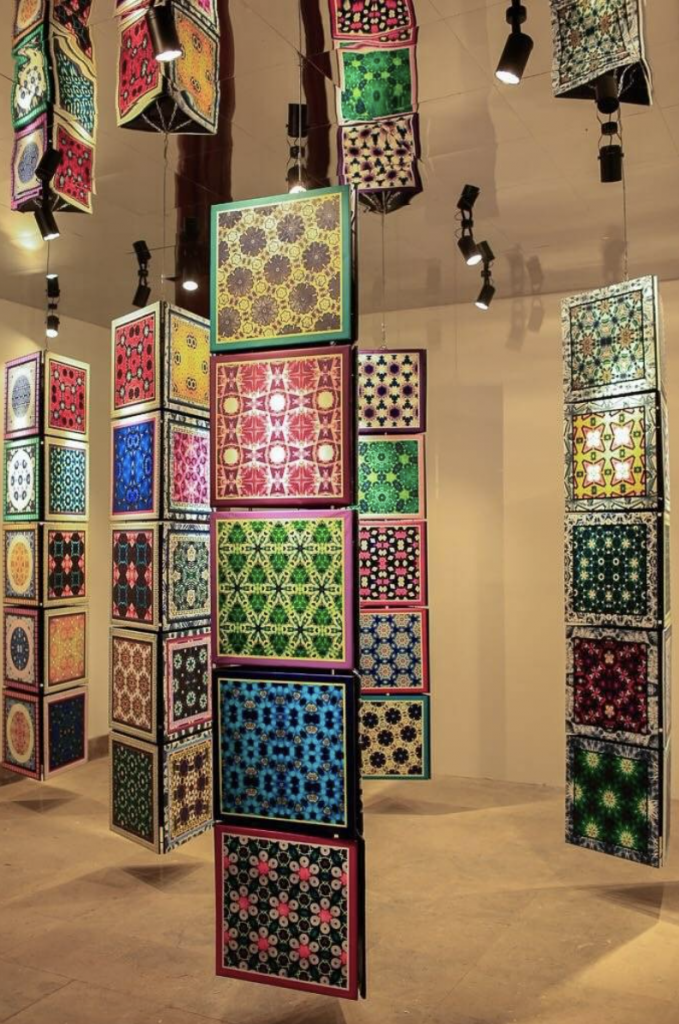
▲Indoor installations from the “Looking at the Palace” series
These times and things that seem far away from us, art is like a bridge that brings us closer. In the past, gold leaf was exclusively used in royal palaces and temples to represent eternity and prosperity. But today it fell into the screen leaves in JUJU WANG’s works. As the liquid inside flows, in the light, shadow and movement, space, time, and even materials are rewritten and given new meanings. Sign of the times.
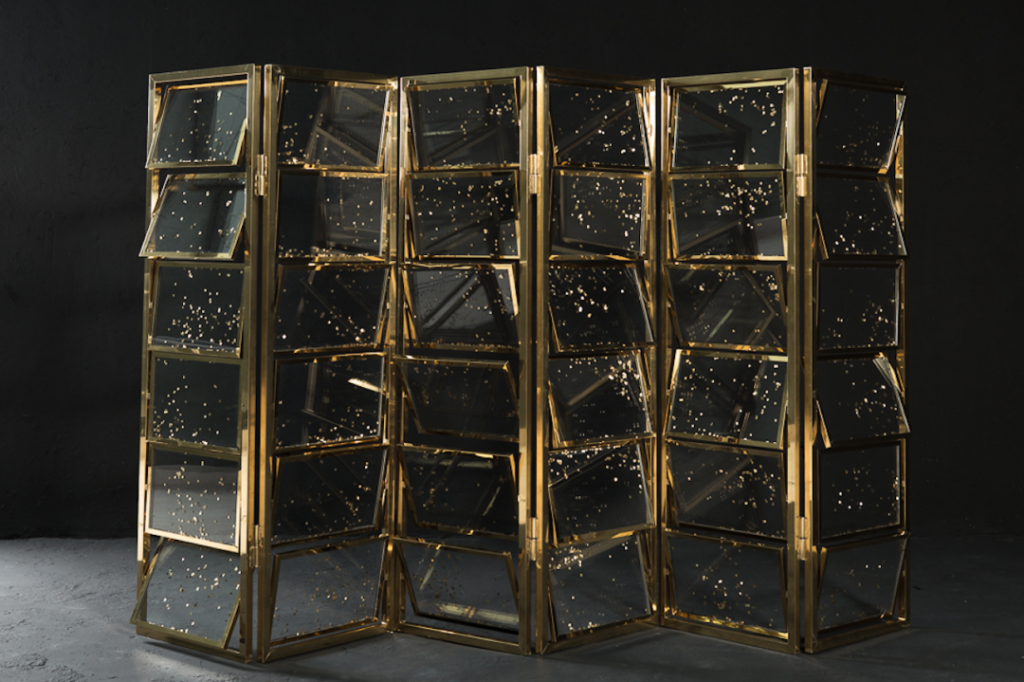
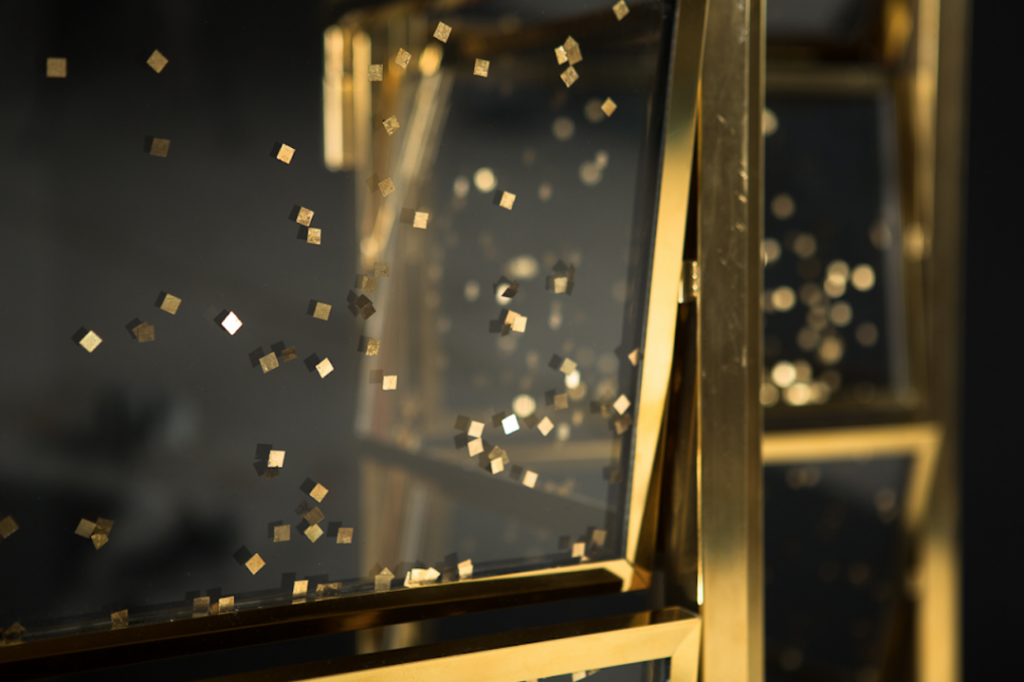

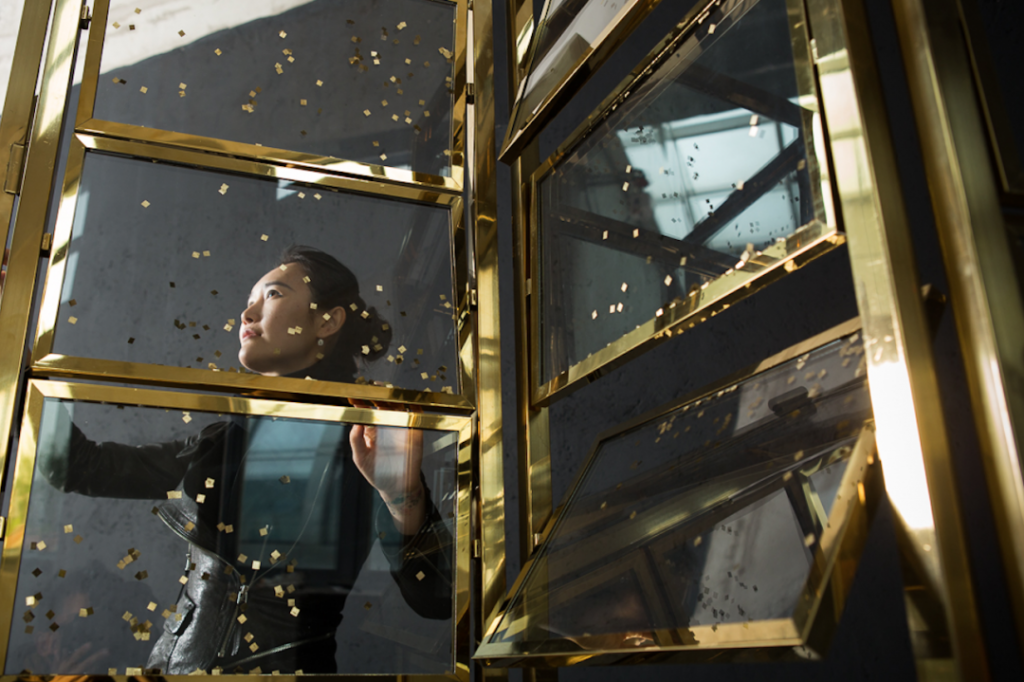
▲”Gold Foil Screen”
In addition to shouldering the responsibility of historical inheritance from the perspective of an artist, JUJU WANG also records his growth and life with his works. “A beautiful game” (a beautiful game) exhibited in France was inspired by Western fables: “When your eyelashes fall off naturally and are picked up from your cheeks, if you make a wish on them, your wishes will come true.”
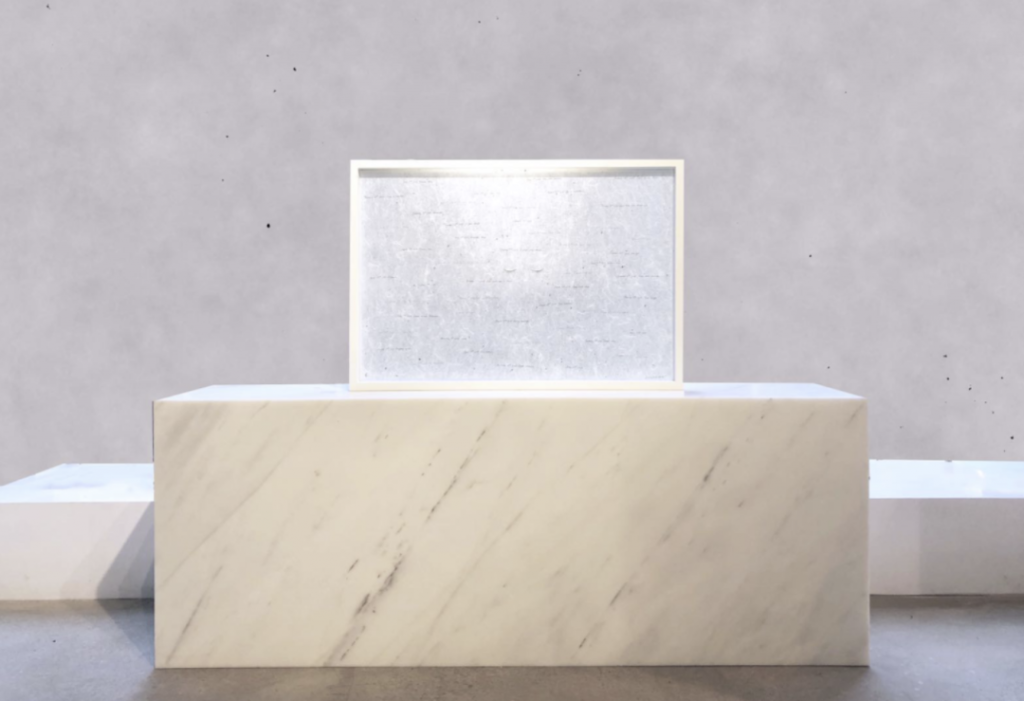
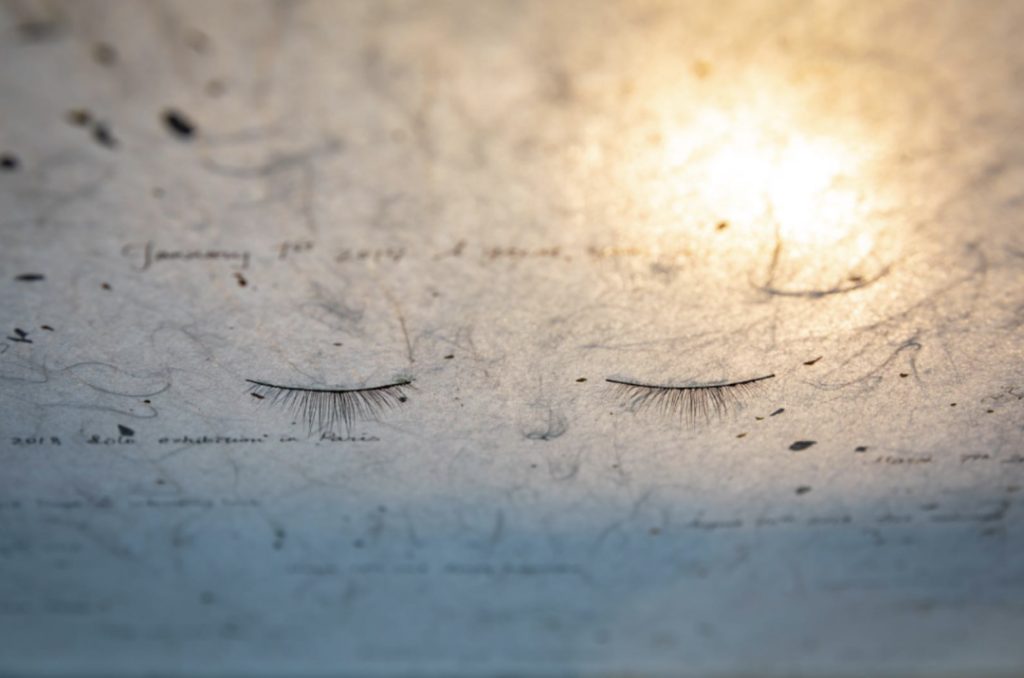
▲”A beautiful game”
So within six months, she gathered together the eyelashes she had lost due to metabolism, until she had enough to create a complete pair of eyelashes. She placed the pair of eyelashes on thin rice paper, with bits of gold and silver foil scattered around. Behind this pair of eyelashes are countless wishes shining, or perhaps the most sincere expectation in a not-so-good time.
emotion, felt
“I have been creating art for six years. I don’t like creations that are mainly functional. My works are my first impact on space and things.”
In the eyes of most people, installation art is synonymous with “uselessness”, but JUJU WANG chose it as his own direction precisely because of the “uselessness” of installation art. When an era, a society, and a culture are wrapped up in glitz, skill, and compromise, then artists should stand up, put everything aside, purely express emotions, and regain their true nature.
Her first well-known work, “Cloud House”, is a work that evokes innocence as she walks into a simple place. Manzhao Village, a small town in Xishuangbanna, is the birthplace of Dai paper, a national intangible cultural heritage. This kind of paper is tough, waterproof, not afraid of corrosion and mosquitoes, and can be passed down for hundreds of years. But it is very cumbersome to make and requires 12 processes. JUJU WANG, who witnessed the charm of local customs and craftsmanship here, extended the original 4-5 day trip with his daughter by two weeks.
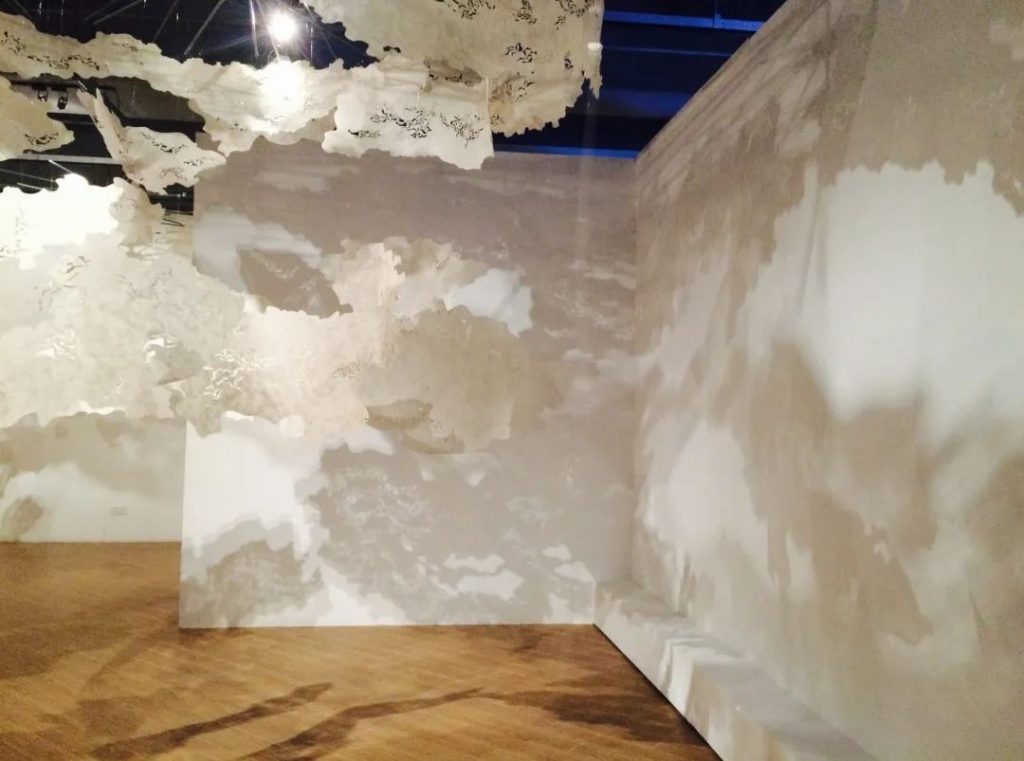
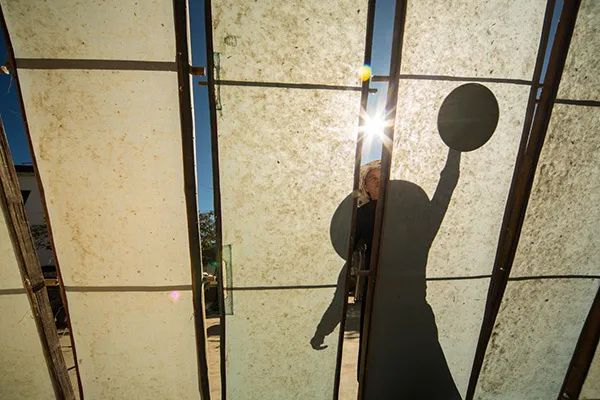
▲”Cloud House” and Dai paper production
They lived in this small village with only more than 200 people. During the day, they would go to the mountains to cut trees and study with the paper-making masters. In the evening, they would be invited by the hospitable villagers to eat and drink tea at home. The original ecological life of slow life was beautiful but full of frustration. . One day when they were taking a nap in the mountains, their daughter pointed to the clouds in the sky and said it was a speeding carriage, but the little boy in the village next to them said that it was not a carriage, but a monster with horns. It was this afternoon conversation between two children that inspired “Cloud House”.

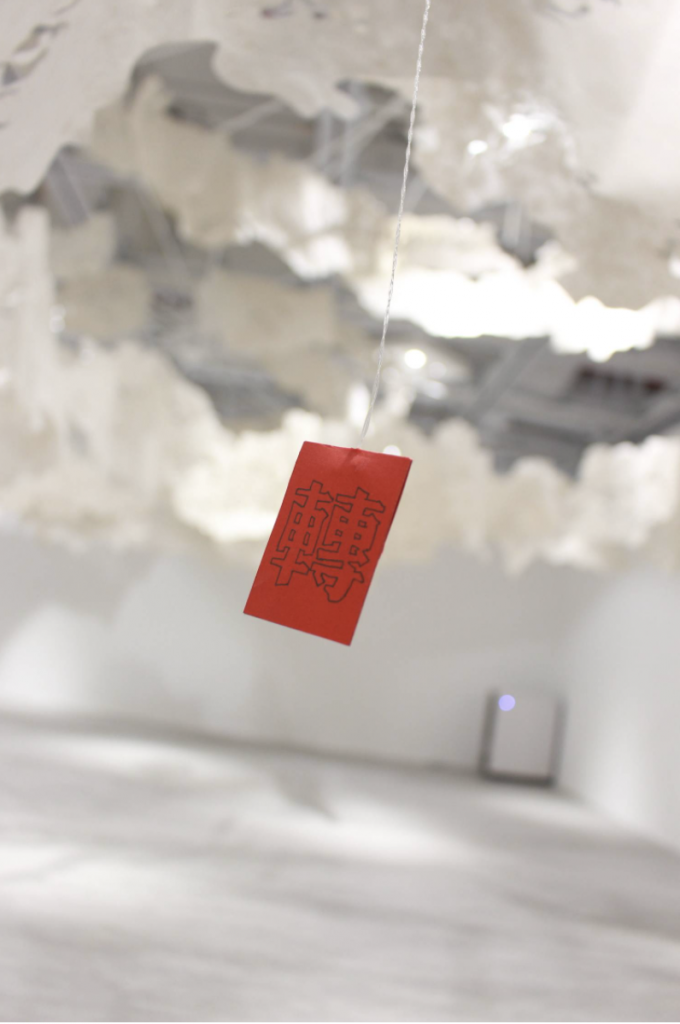

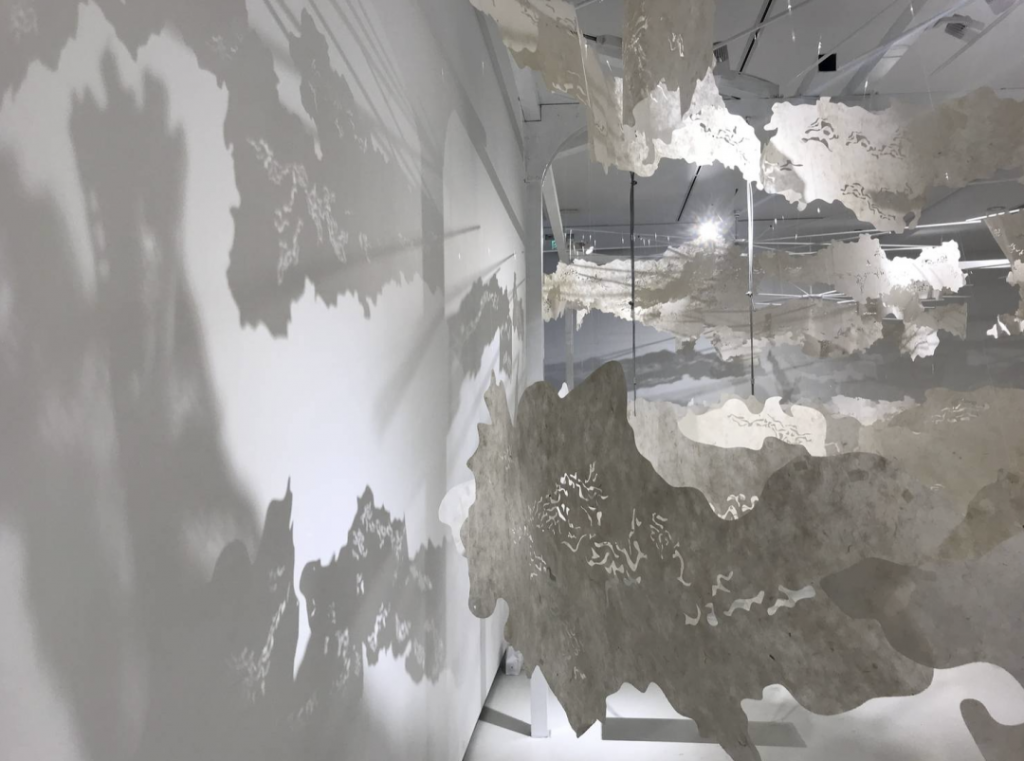
▲”Cloud House”
Nearly 100 pieces of Dai paper were laser-engraved into clouds, and then hung in groups with 0.3mm thin wires. The light shines into the clouds, and the clouds are reflected in the pure space. The boundaries between heaven and earth are blurred, and a boundless world spreads out. carriage? Monster? childhood? glory? …
“I don’t specifically search for feedback from the audience, but sometimes I read that the feedback from the audience is very interesting, and the shooting angle is also very creative, which I have never thought of. It also allows me to see different angles and interpretations of the work. I often share this feedback with everyone at sharing meetings, but it will not affect the creation of my future works.”
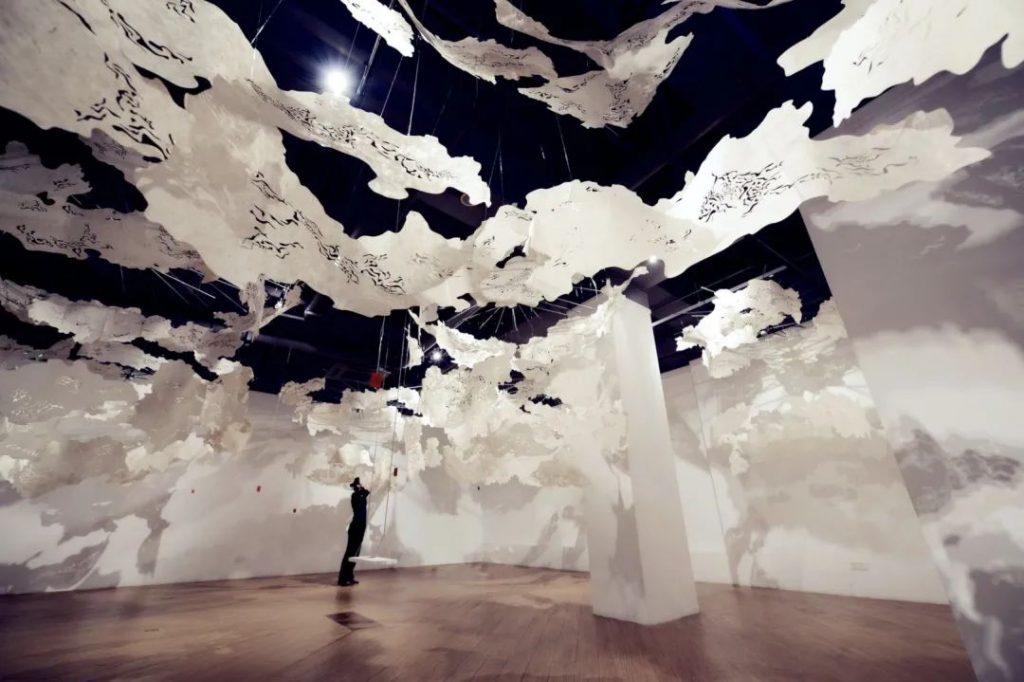
After “Cloud House”, in a special cross-border collaboration between her and Swarovski, the influence of crystals in her mind directly connected her to the happy blue waves of California in her childhood. So “Sea-cret” (Secret of the Ocean) is made of 70 acrylic plates of different blues, which after being twisted and bent to varying degrees, merge into a curved wave. Some people feel the surging waves here, and some people find peace here… A thousand viewers have another feeling. Emotions are felt by others, and people can also see themselves.
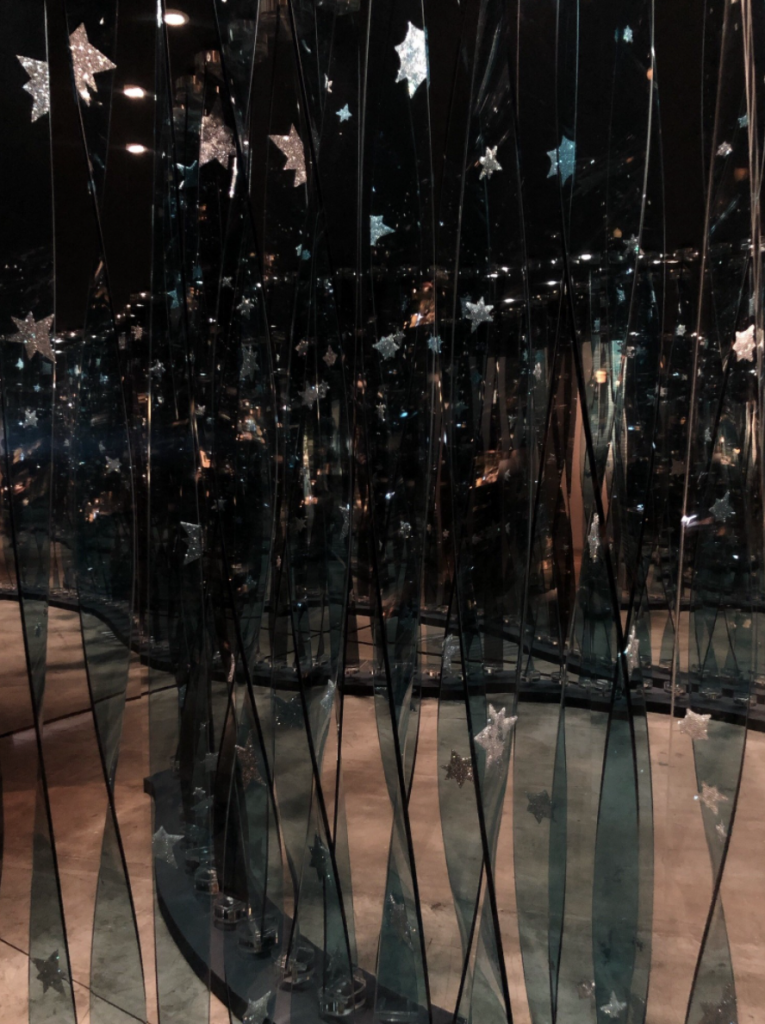
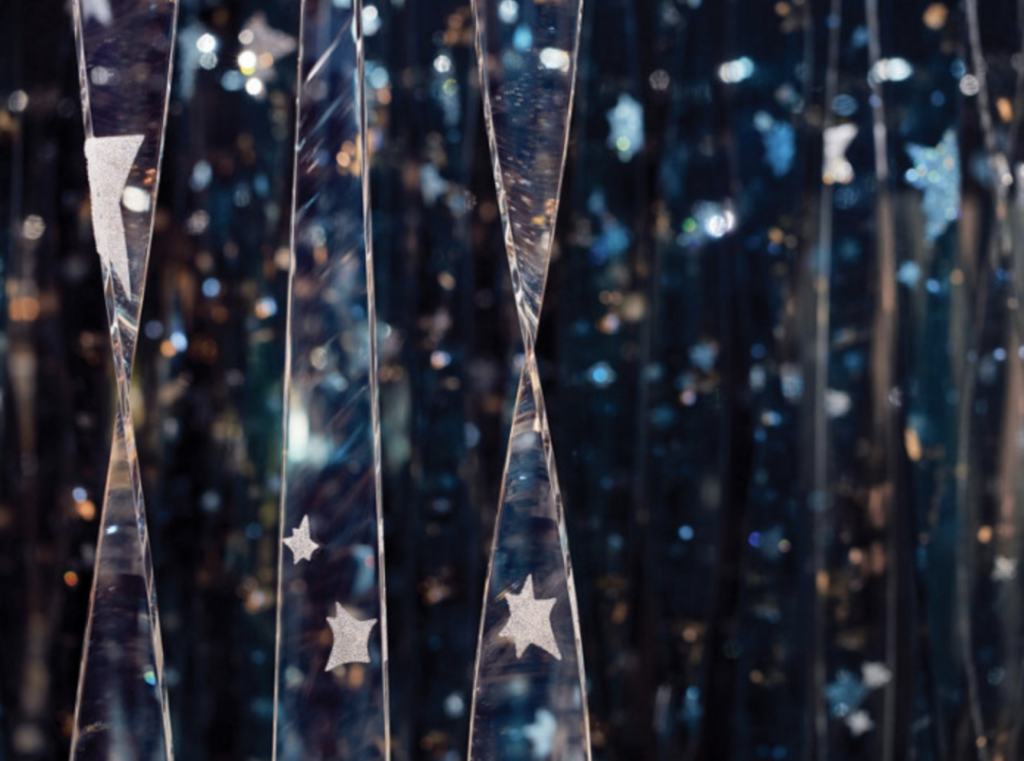
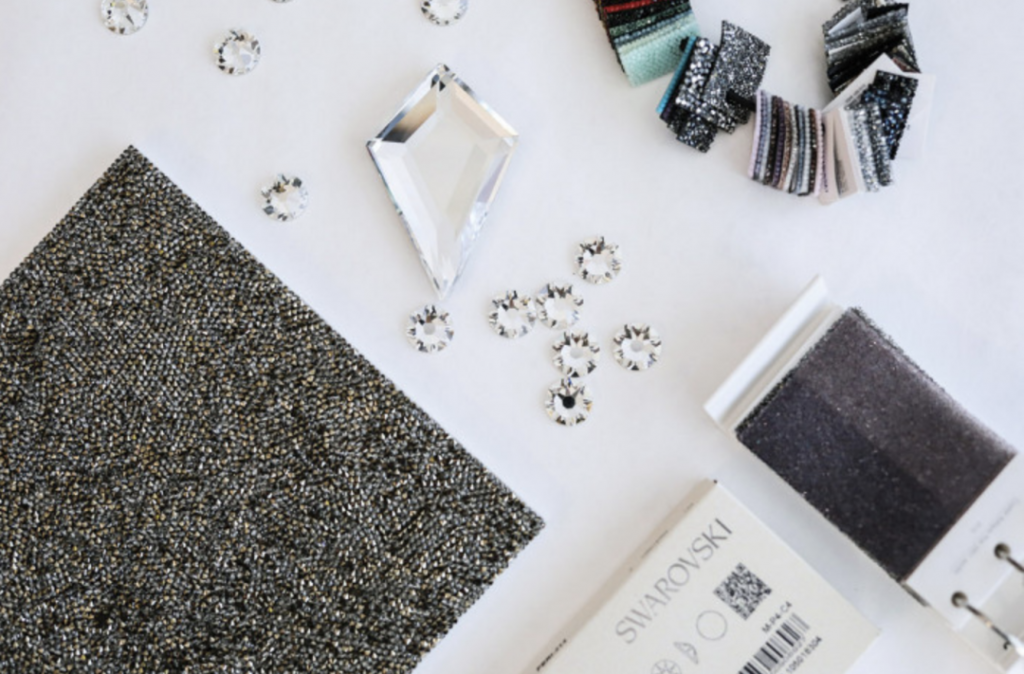
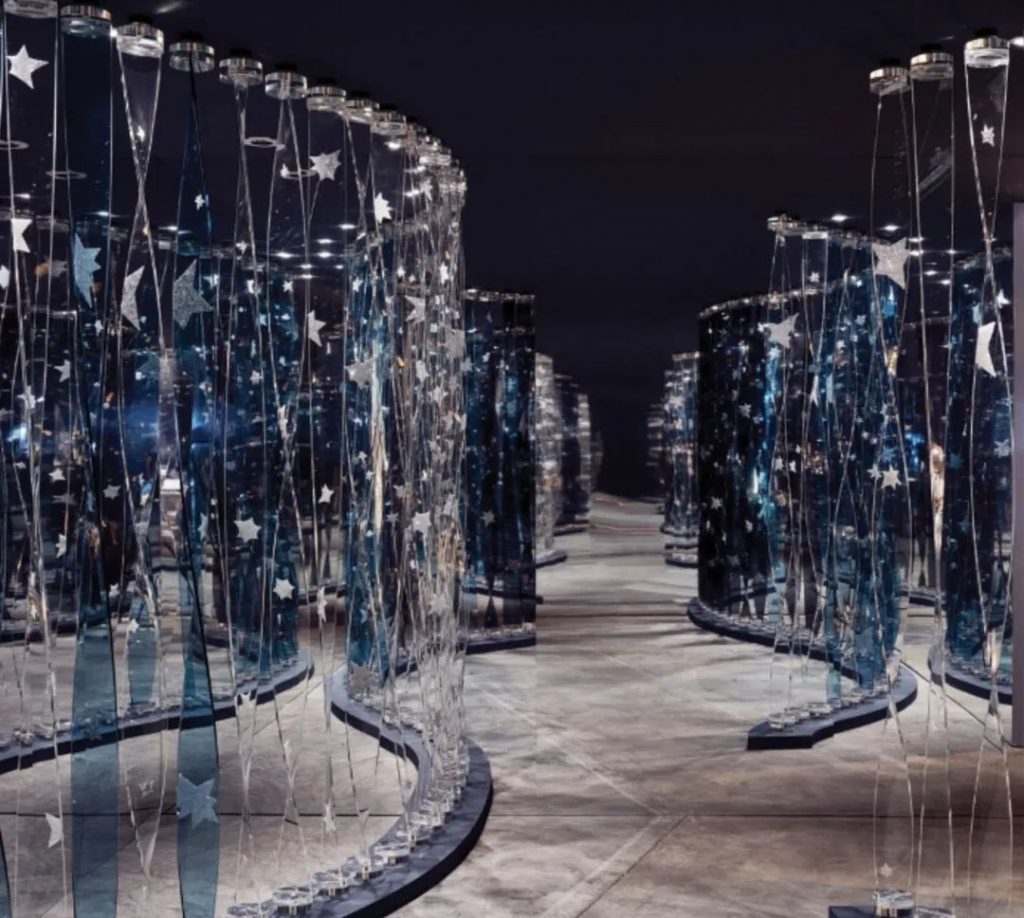
▲《Sea-cret》
A good work will not only leave traces in people’s memory and time, but the work itself can also leave memories generated during its interaction with the viewer. Every interaction between the audience and the work adds an emotional context to the work itself. Facing interactive installation art is like facing a child. There is no need to give them too many restrictions, let them grow freely according to their own emotions.
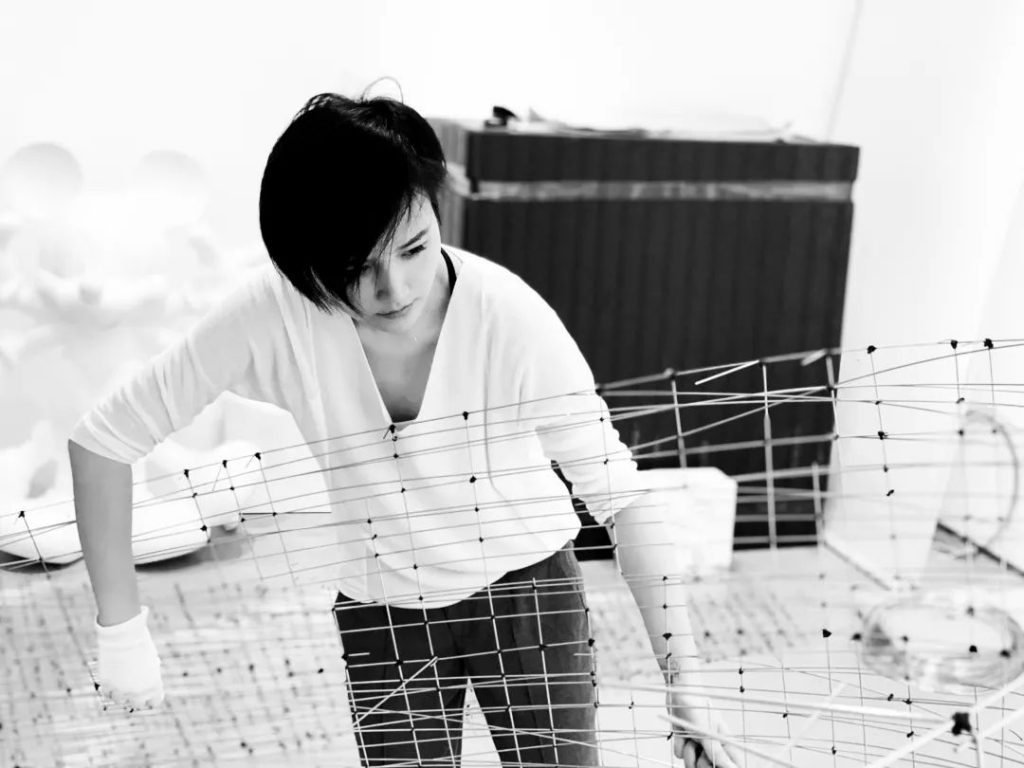
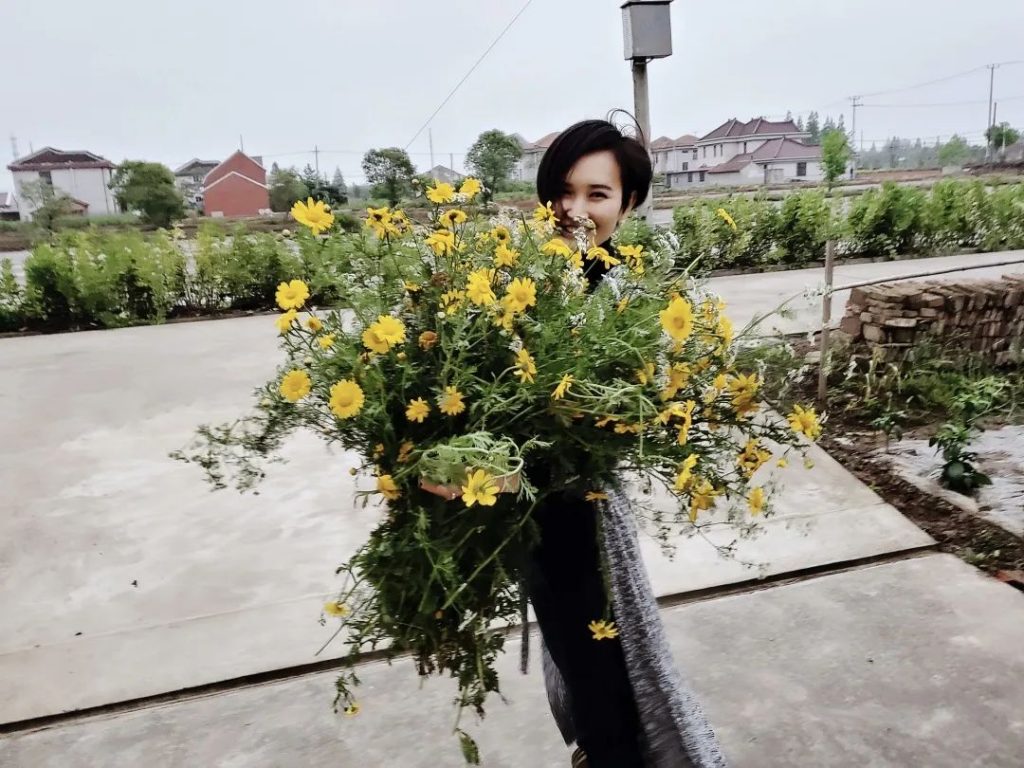
The charm of installation art is that the creator allows space, materials and emotions to blend with each other to create a silent visual drama. It is silent, but every detail reveals the artist’s thoughts, thoughts, and even life experiences. JUJU WANG created these works, which are infinitely tolerated and grow freely in Eastern and Western cultures, ancient and modern time and space. But at the same time, they are also reshaping the spiritual world of JUJU WANG, recording and absorbing each other.
Installation art is never a cold picture, and it never belongs to the creator alone. They will develop a new trajectory in the audience’s experience, resonance and controversy. Because change is the only unchanging eternity in the world, to be curious, to observe, to feel, to be fearless and to grow freely, let us always be like teenagers in the creation of JUJU WANG.
